I first learned about the Barracas theater from an article in the newspaper El País entitled " Inclusive community theater in Buenos Aires, South America's most theatrical city " (15/12/2022).
The play in question is "El casamiento de Anita y Mirko", which has been performed on stage for over 20 years and in which all the actors and actresses are neighbors from the neighborhood.
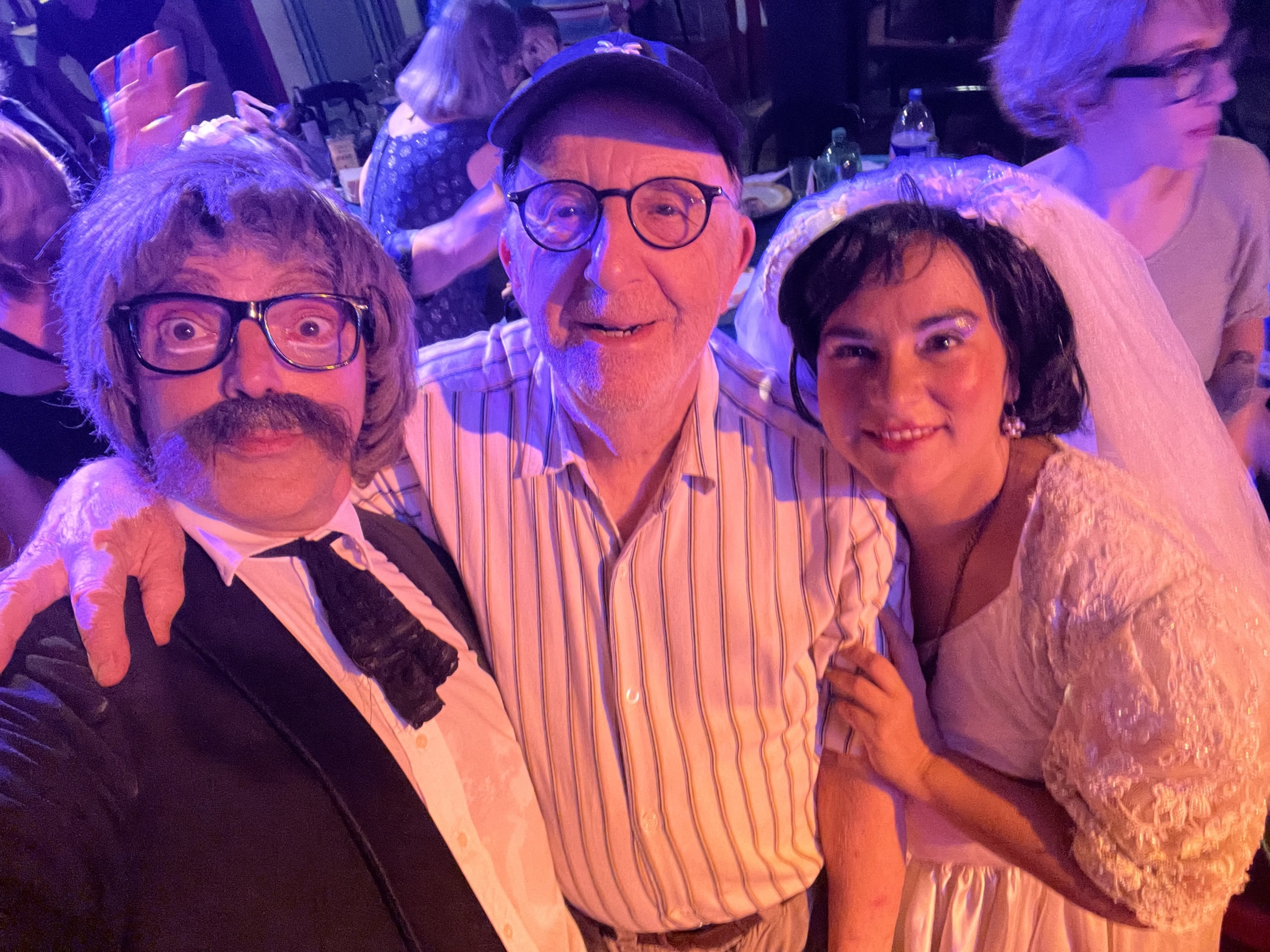
I got in touch with them, they said "dale" (OK) and I was able to take part in the preparation and execution of the wedding party. I had a delightful time that will remain engraved in my memory. It's true that at no point did I feel like I was watching a play: I was at a meeting of neighbors, at a wedding party. That's the magic.
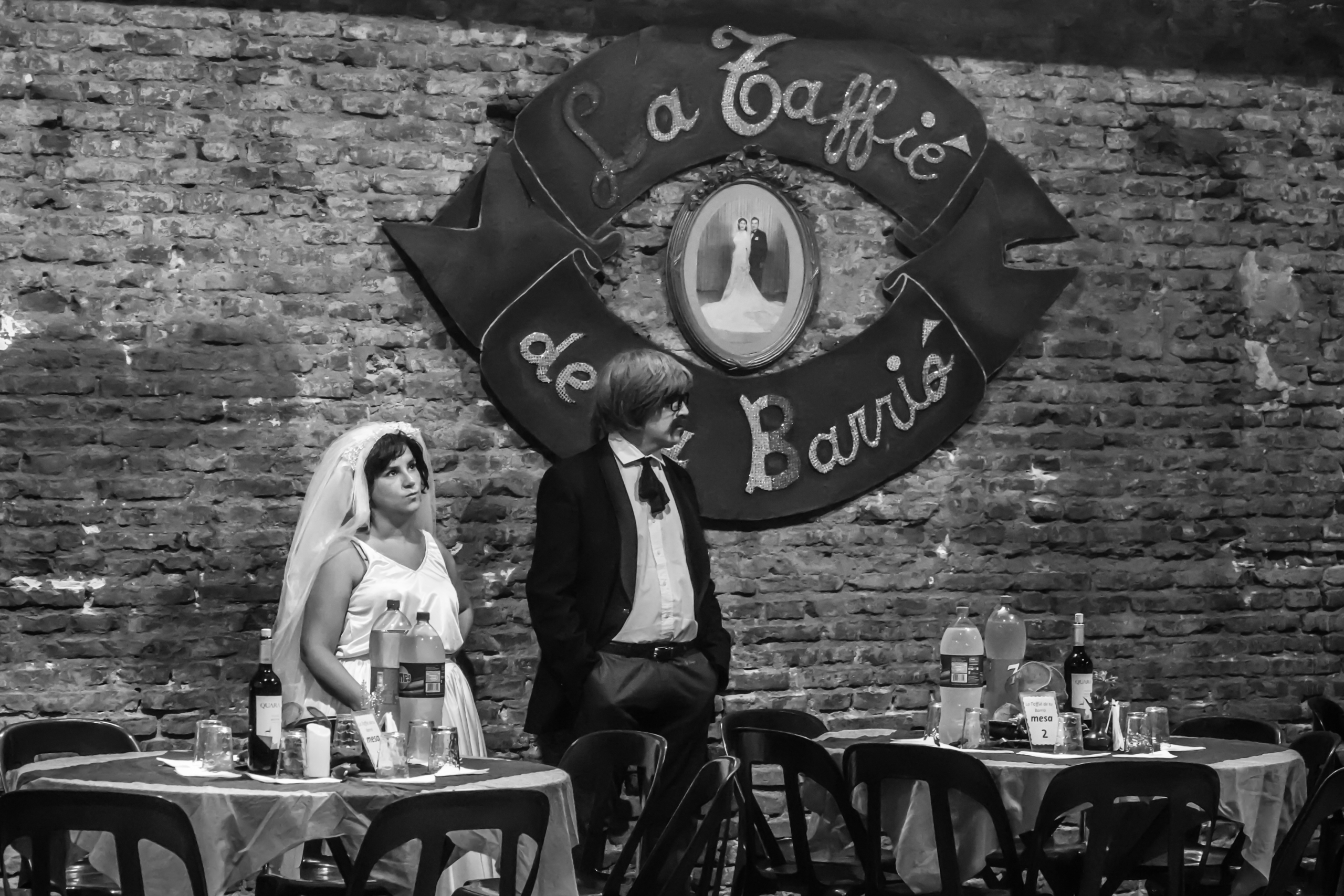
Corina Busquiazo and Ricardo Talento are part of the founding group of Circuito Cultural Barracas, which produced, among other works, "El casamiento de Anita y Mirko" (The Wedding of Anita and Mirko).
Community theater doesn't count with academic training, scholarships or diplomas. It's learned as you go along, perfecting lines and postures in the dance. The laughter is real. The tears, certainly too. Politics and the political coexist on stage. Rites, the ritual of each performance, glances, complicities, life in society.
Corina tells me:
"When the military dictatorship ended (Argentina, 1983), our idea was to form a street theater group. We created a theater group with graduates from the Avellaneda institute, called 'Las Calandracas'. We presented our first show 35 years ago, playing in Lezama Park."
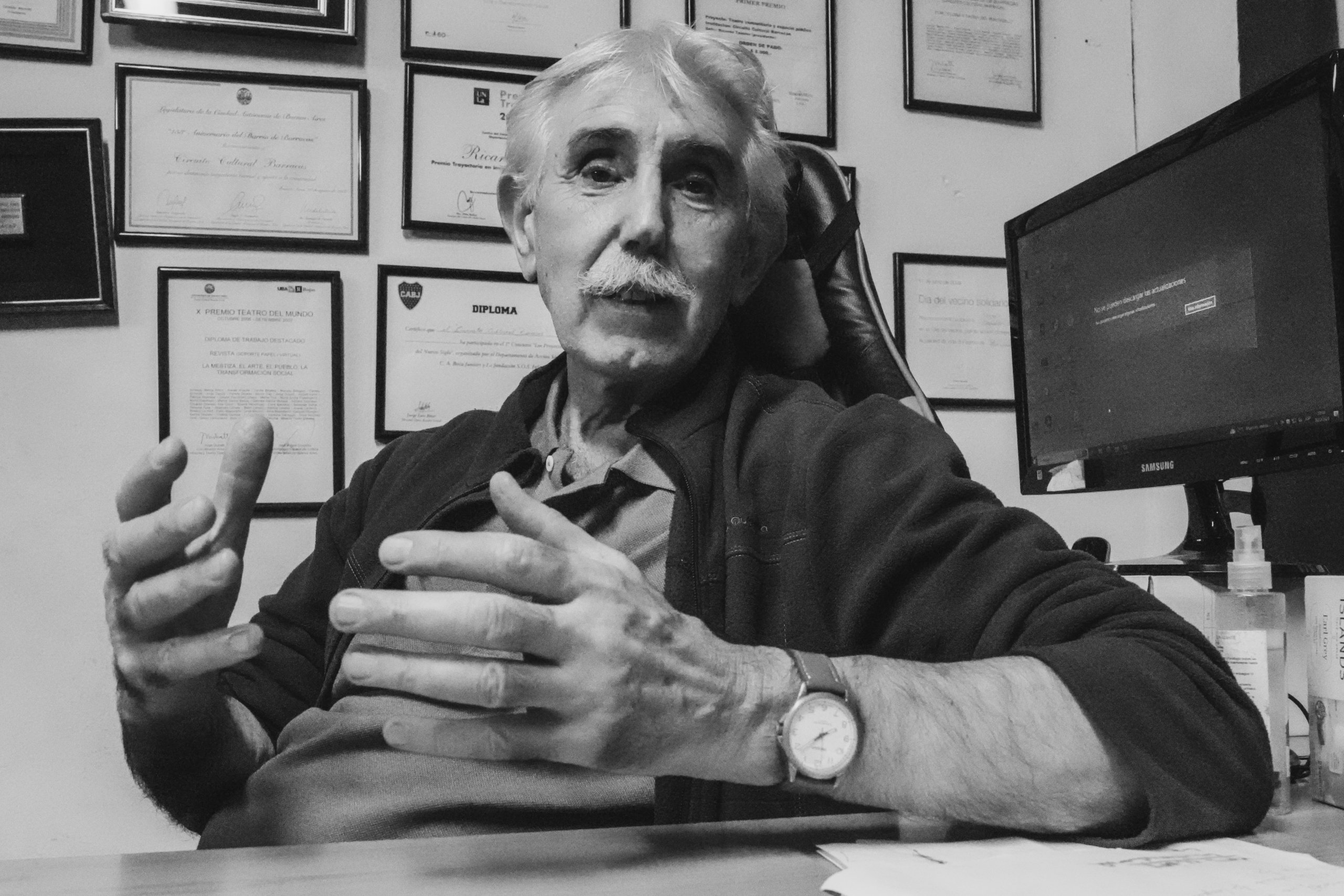
How did the idea for the wedding room come about?
"The birth of the Barracas theater comes at a key moment in Argentina's socio-economic context: the year 2001."
Ricardo
*In December 2001, an economic, political, social and institutional crisis that had begun months earlier reached a critical point. This manifested itself severely with the imposition of restrictions on access to money, known as the "corralito", and the state of siege decreed by the then president, Fernando de la Rúa.
"When we first called in the neighbors, they arrived with a look of concern in their eyes. Many were unemployed or, in the best of cases, didn't have enough money to make ends meet. The convocation was based on the need for good news, for how to meet each other as people and as a community. This is how the idea for the play "What happens if we are the protagonists of a party?" began to develop. The party, not as a hysterical demonstration, but as a meeting, a community celebration, a place of integration. A meeting where all ages are present and all people want to come, that there's a place for everyone, that everyone can participate, laugh, put on make-up, that we're all one family. And what's the only occasion when we can bring together all generations, have fun, eat and dance together? A wedding party, of course! And the old-fashioned way, because nowadays everything is programmed, a deadly bore. That's the great success of this play, which doesn't have dramatic depth, but conveys a very strong message. And there's something else here: you'll notice that there's nothing black in this theater, there's no black canvas, which is contrary to the theater where everything is black boxes. Black is something Euro-centric; in Latin America you see the flags of indigenous peoples and there's no black. Why do we have to use black as something neutral?"
Ricardo
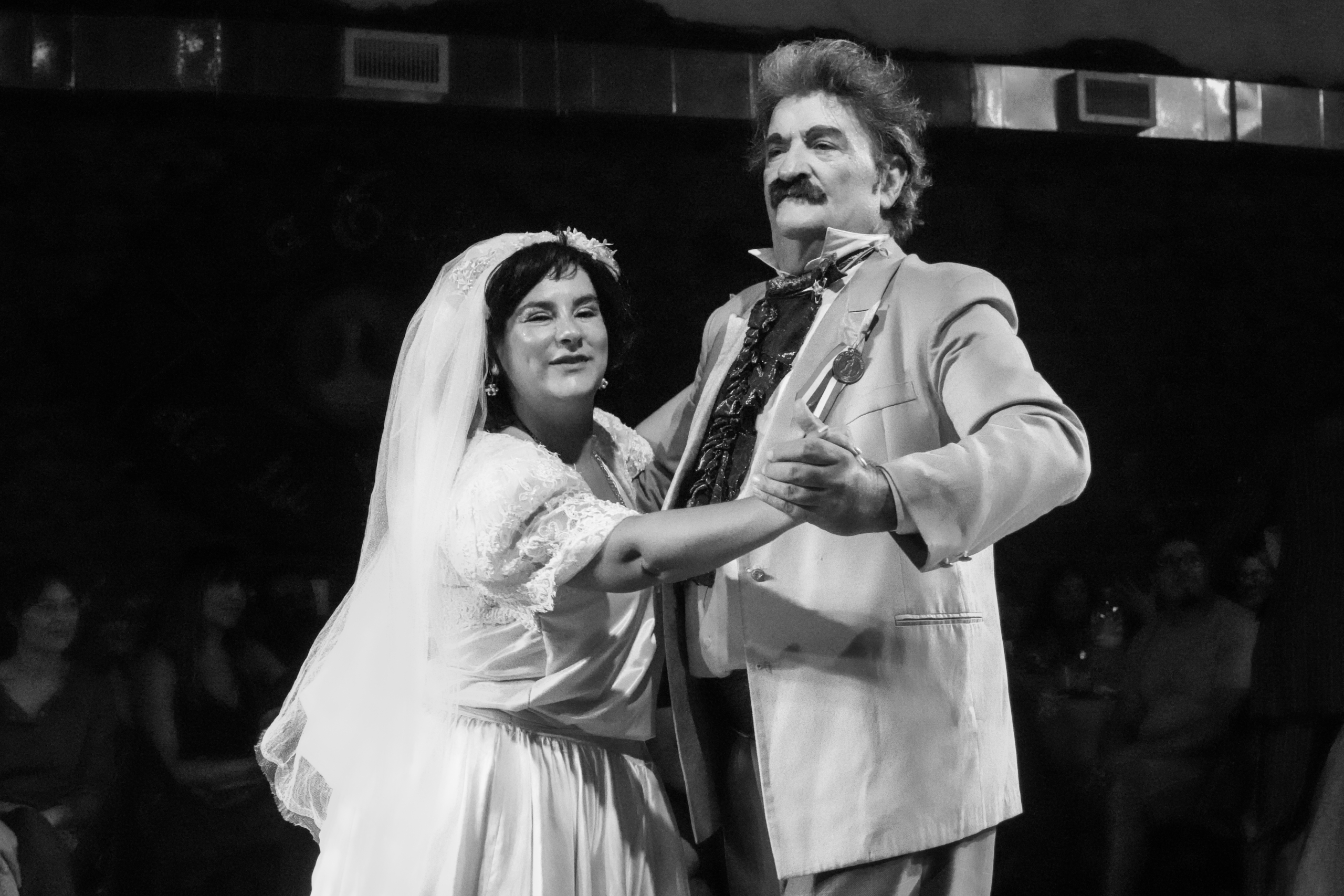
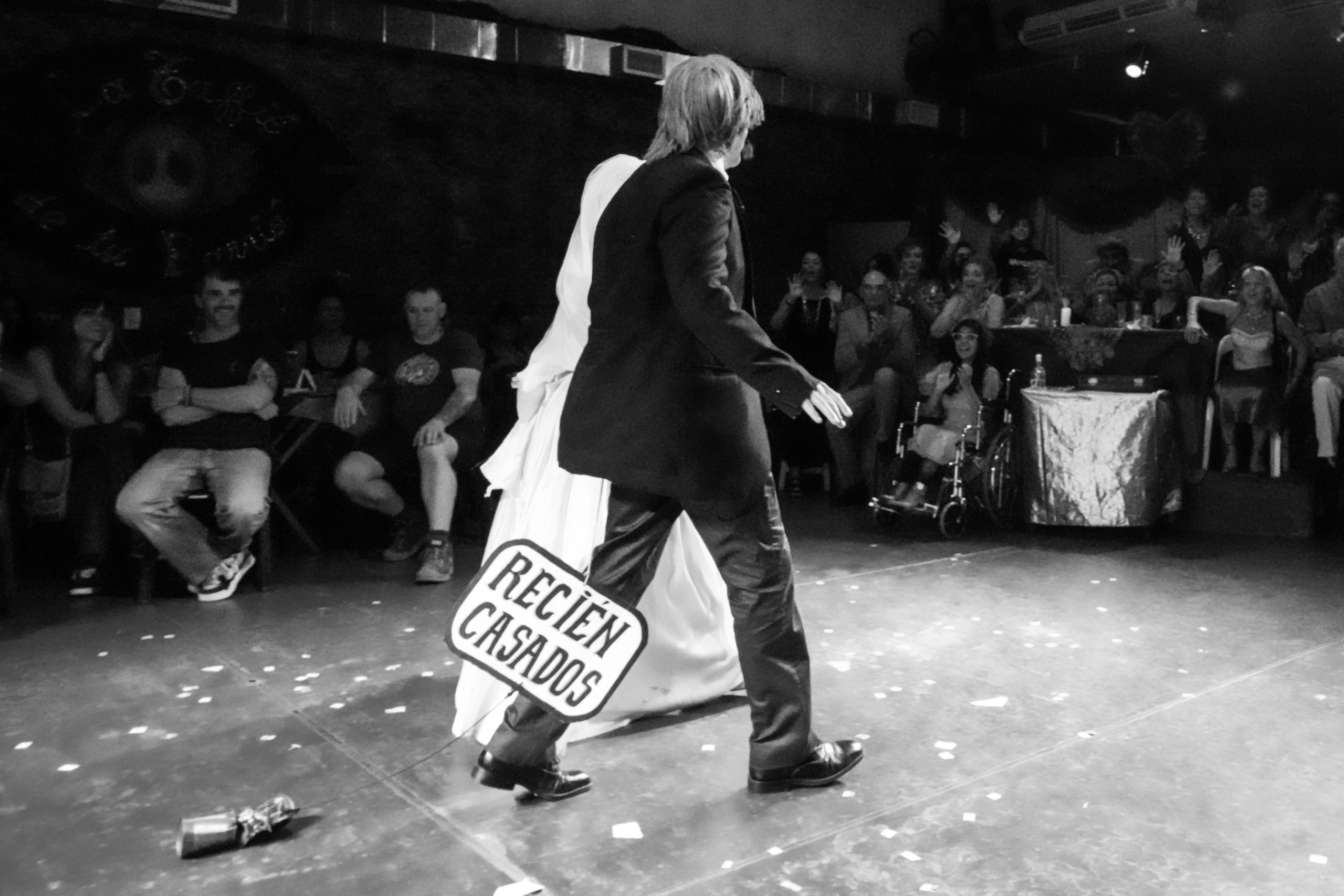
How did you arrive at Mirko marrying Anita?
Corina:
"We had the idea of two very opposite families, i.e., one family very sociable, outgoing, cheerful, and the other quite the opposite. This created a sense of humor. The idea that they should be Italian came naturally, as there are a lot of Italian families here. On the other hand, we had a companion who started playing the character of Mirko, a boy with a component between autism and schizophrenia. He was the first Mirko, and we said: "Che, he looks Russian with autism and schizophrenia. He was the first Mirko, and we said, "Che, he looks like a 'ruso' (Argentinean designation for anyone whose family is Jewish and from Eastern Europe)." He did a divine process here for many years, but he had to stop. Those who took over his character imitated him. The idea is to play with the difference and also a little with the "grieta". That's why it was interesting that they got married and that the families managed to understand each other despite the differences."
*The "grieta" is a concept used in Argentina to mark the head-on opposition between kirchnerists and anti-kirchnerists that divides society, even within families. However, it is also used to explain the binary division between, for example, Boca and River fans, rock and cumbia enthusiasts. It's no coincidence that many believe that this penchant for constant division and interminable conflict is an inherent feature of national identity.
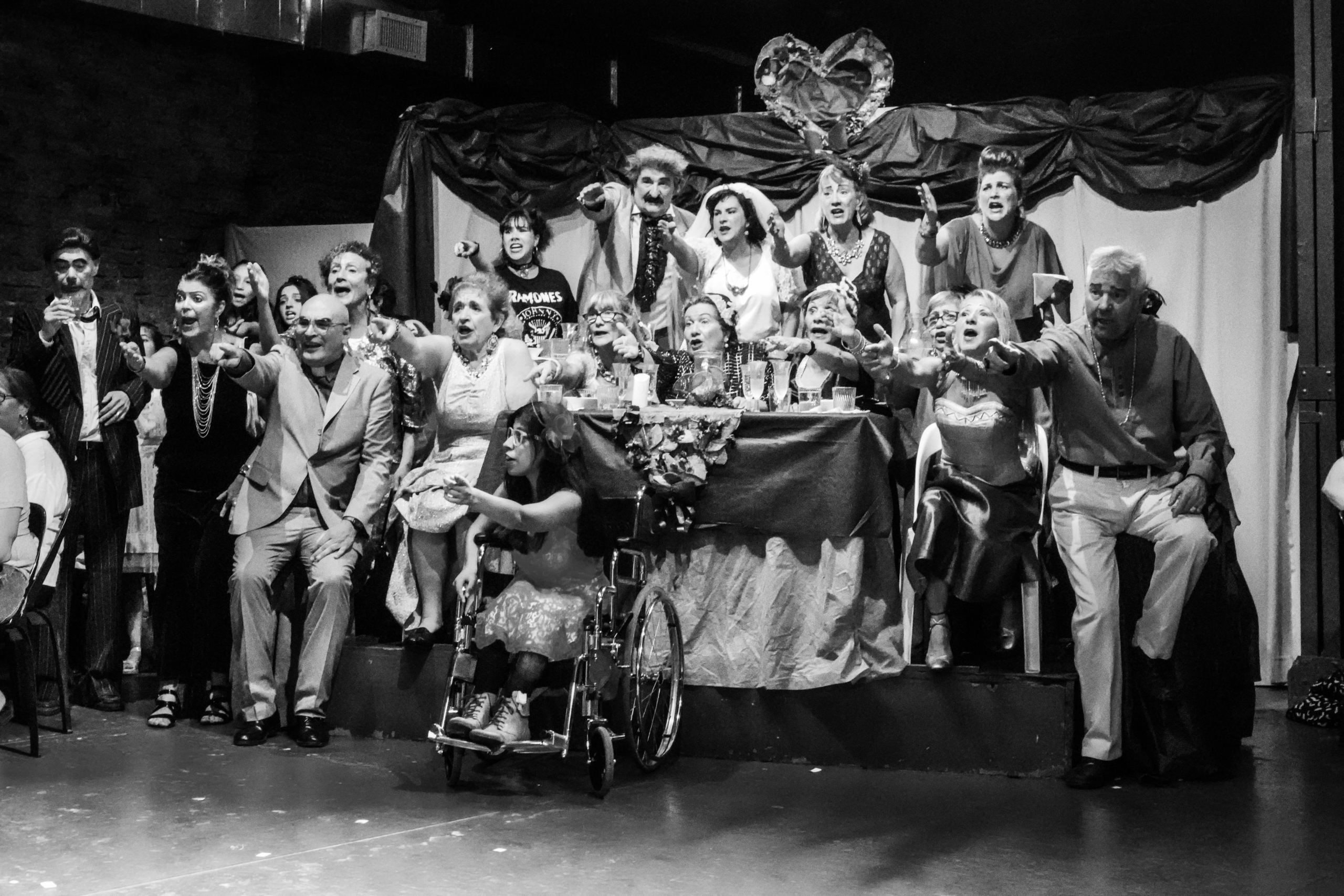
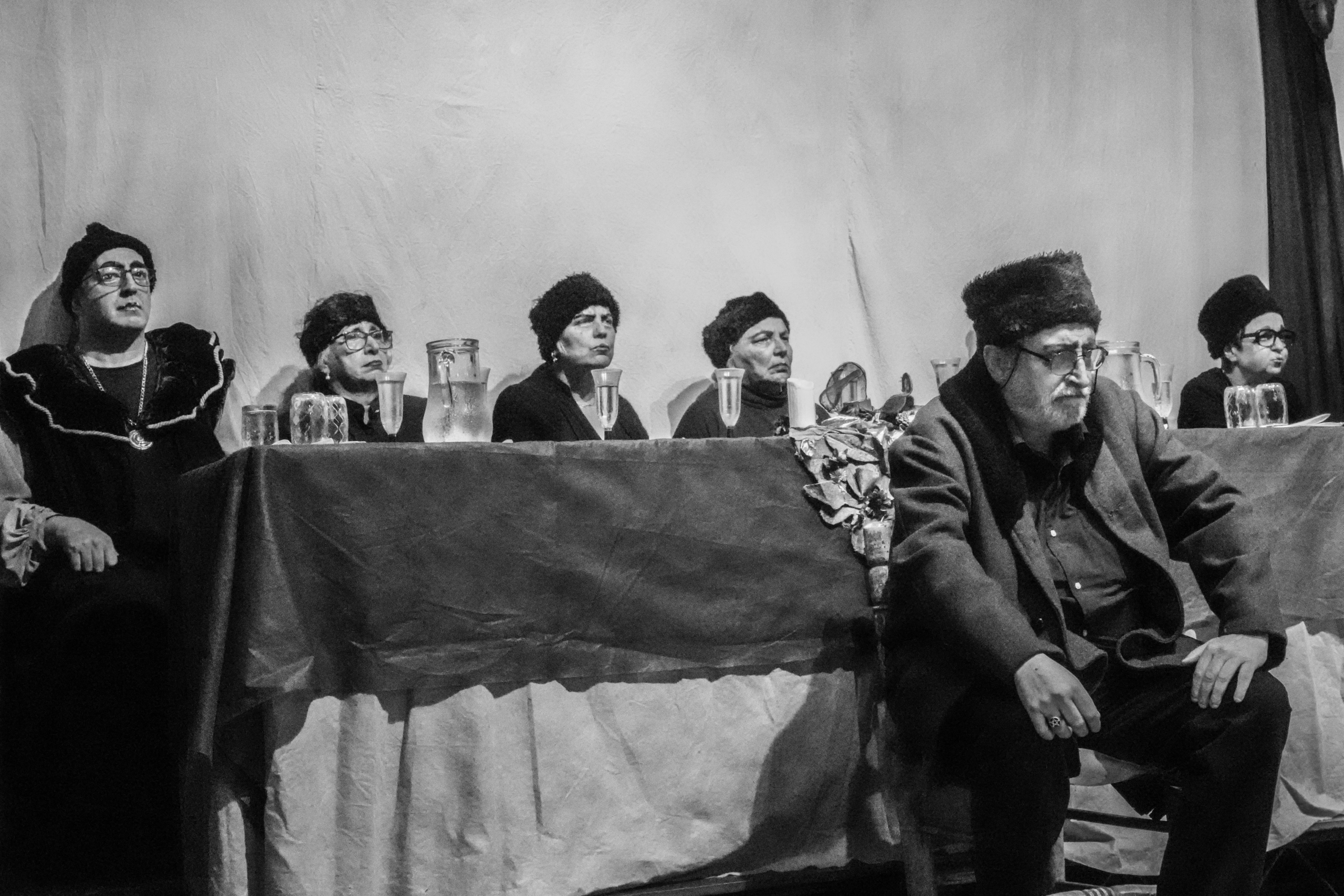
The show tells the story of the wedding, accompanied by various characters and picturesque episodes such as the arrival of an inspector who accuses the Russians of entering the country illegally...
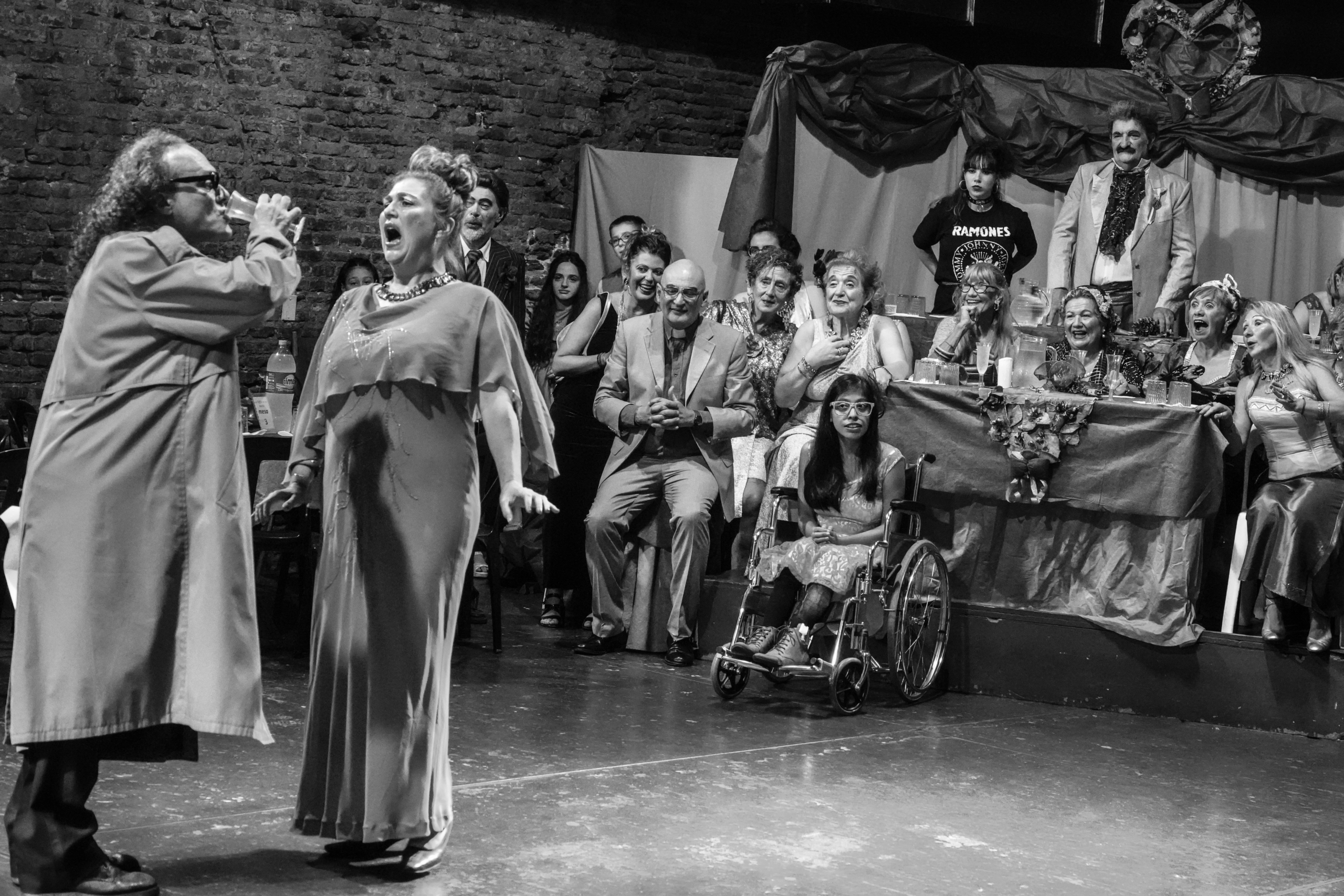
Unexpected appearance of Mirko's former fiancée
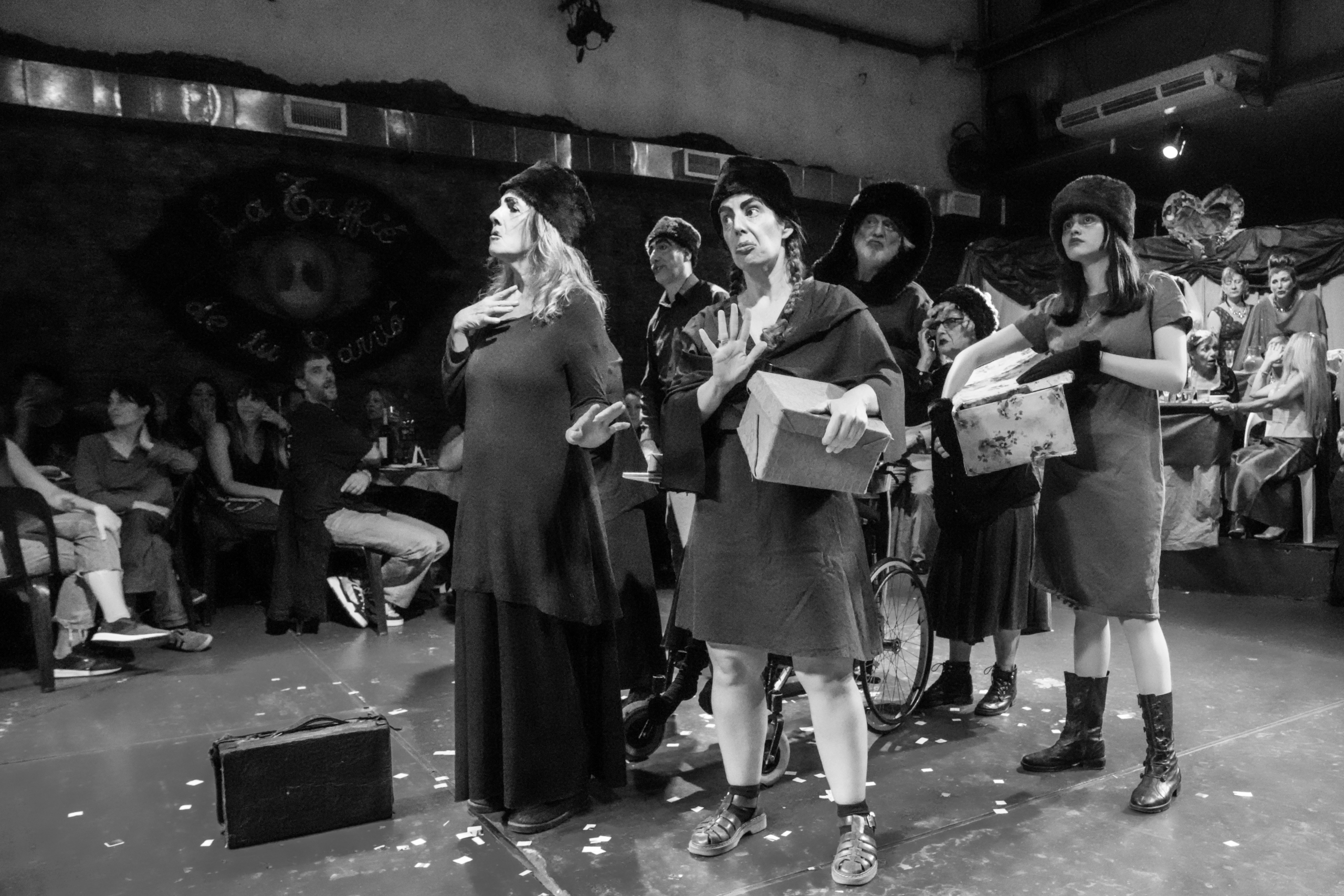
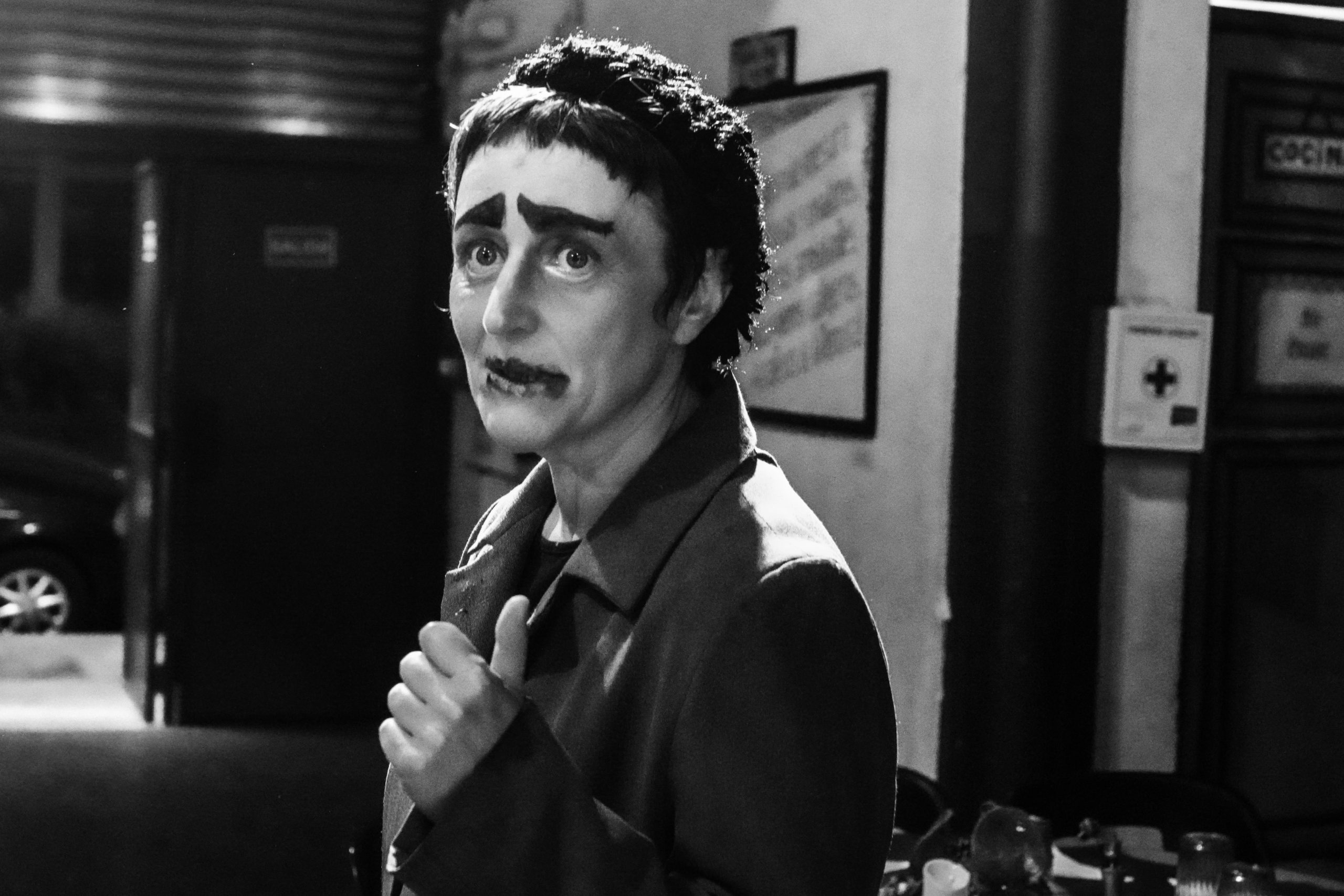
My wedding experience has given me many memories, anecdotes, images and feelings. But for this column, I'd like to highlight the two aspects that have had the greatest impact on me: the importance of inclusionpresent throughout the piece, and the great transformative power of the piecefrom both an individual and collective point of view.
An inclusive work: testimonials
"All generations reinvent powder, here all generations can experiment together."
Ricardo Talento
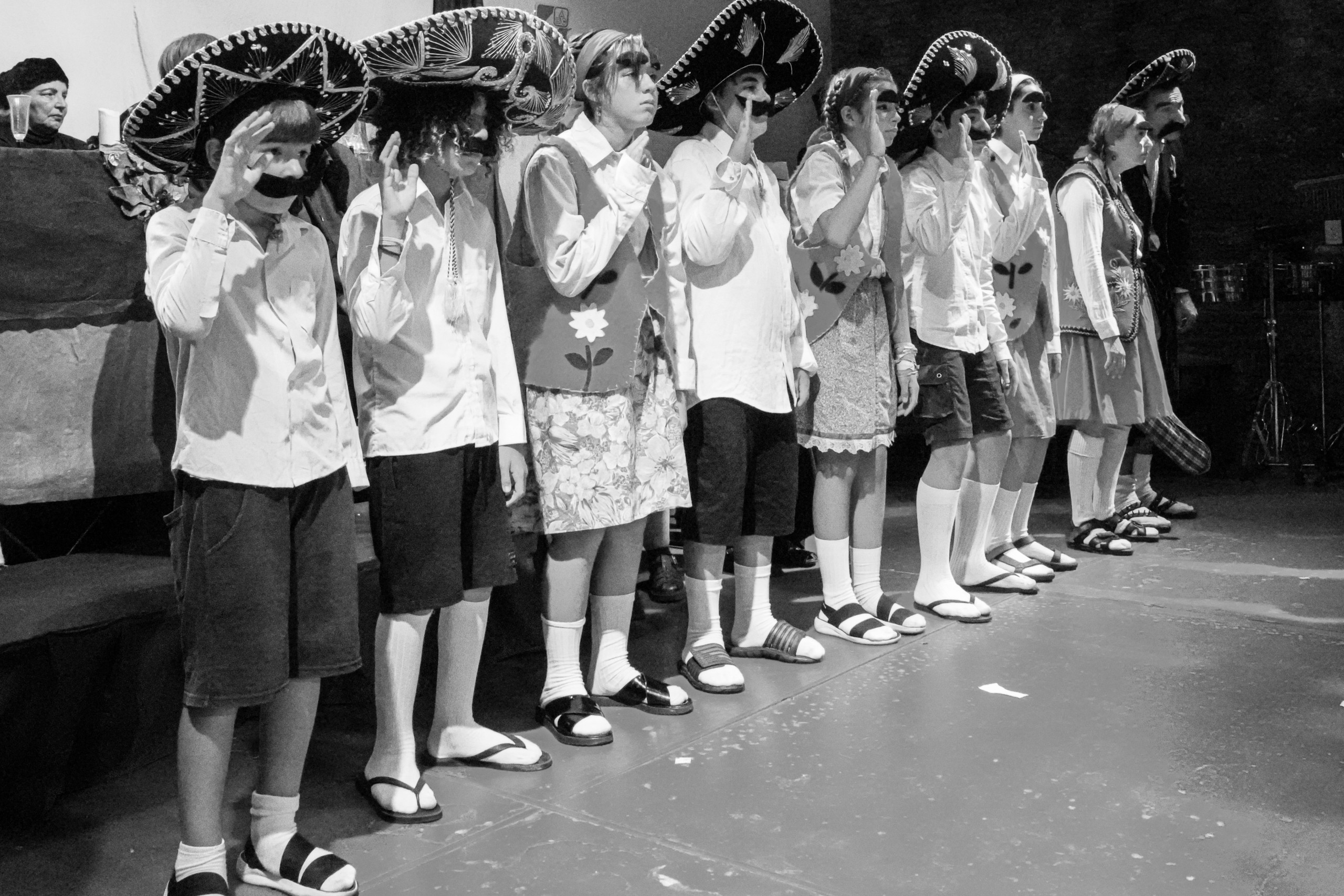
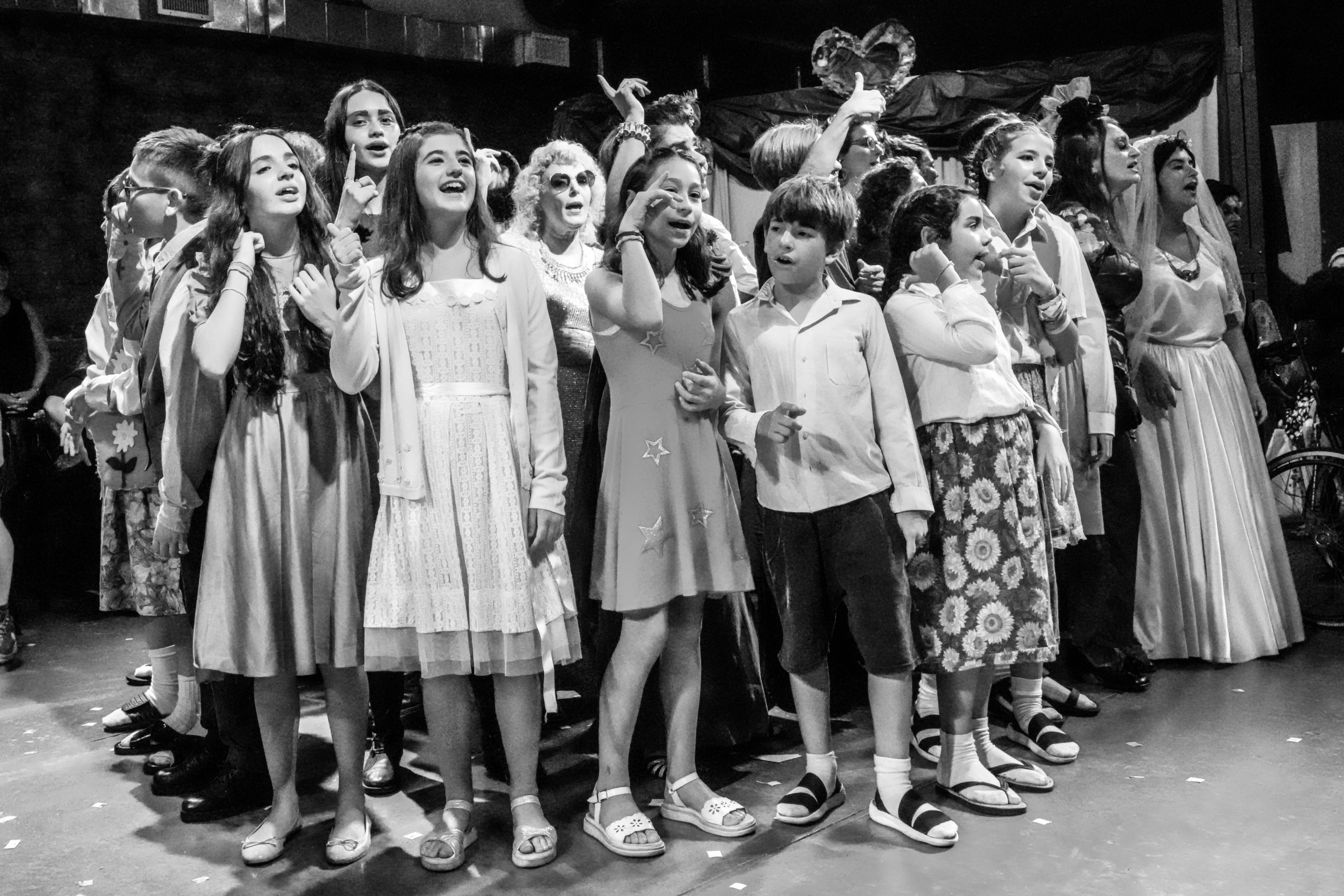
Graciela Cattaneo :
"I'm an art and English teacher, and I'm the mother of Nazarena, who has a motor disability. I love coming here every Saturday, I never miss it. I joined the Circuit 22 years ago. The most important thing for me is that they've accepted my daughter, she's part of the show. Ricardo has always looked for a role for her, whether it's in the 'murga' (musical and dance troupe) or the wedding."
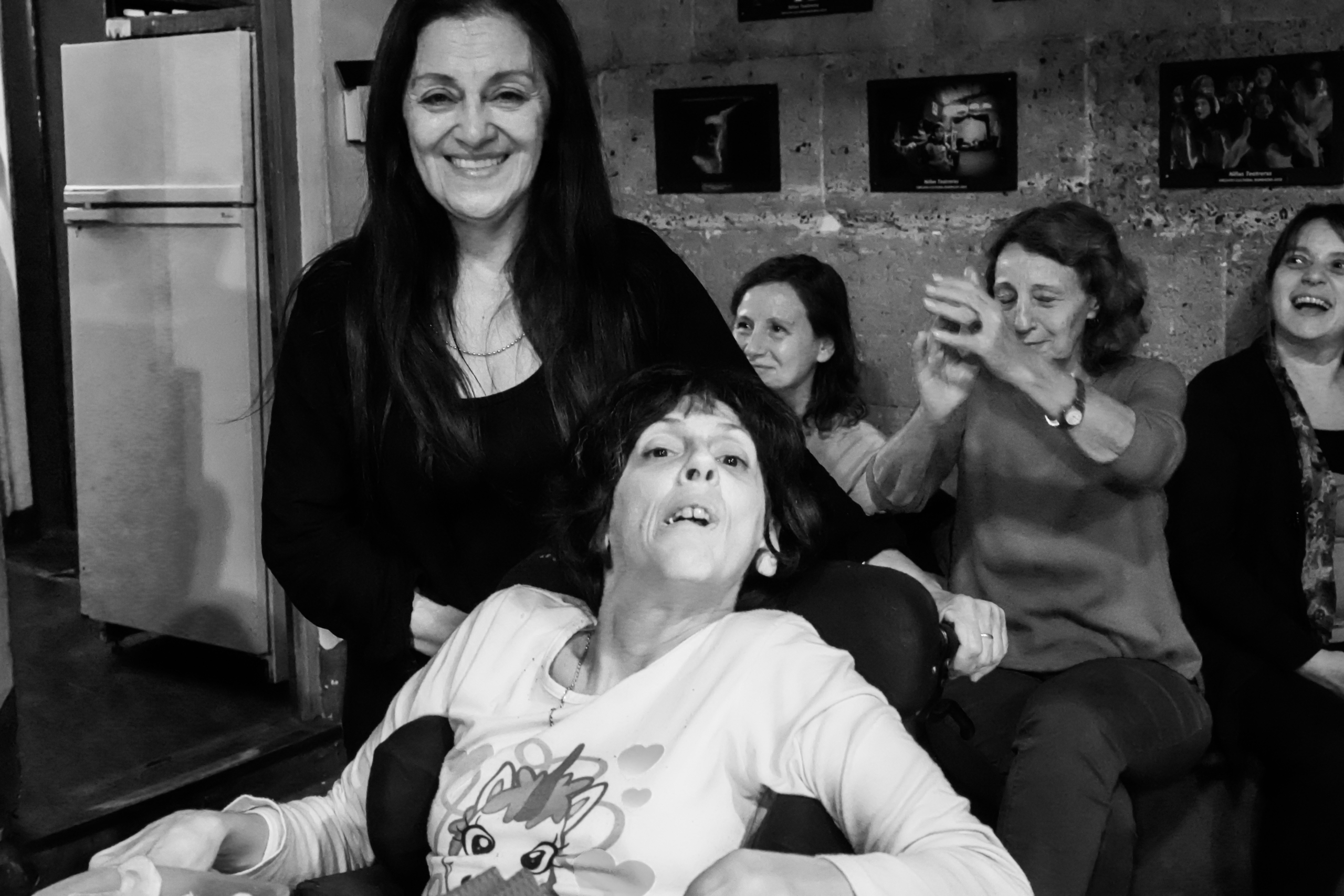
Marcos Chacón:
"I fell in love with the Circuit; here we integrate everyone, so it's wonderful. There's a girl with a disability, her name is Lucia, she speaks and she's in a wheelchair. When we were doing the rehearsals and it was time to dance, you don't know how her little eyes shone, because prostrate, she found a place where she could express herself."
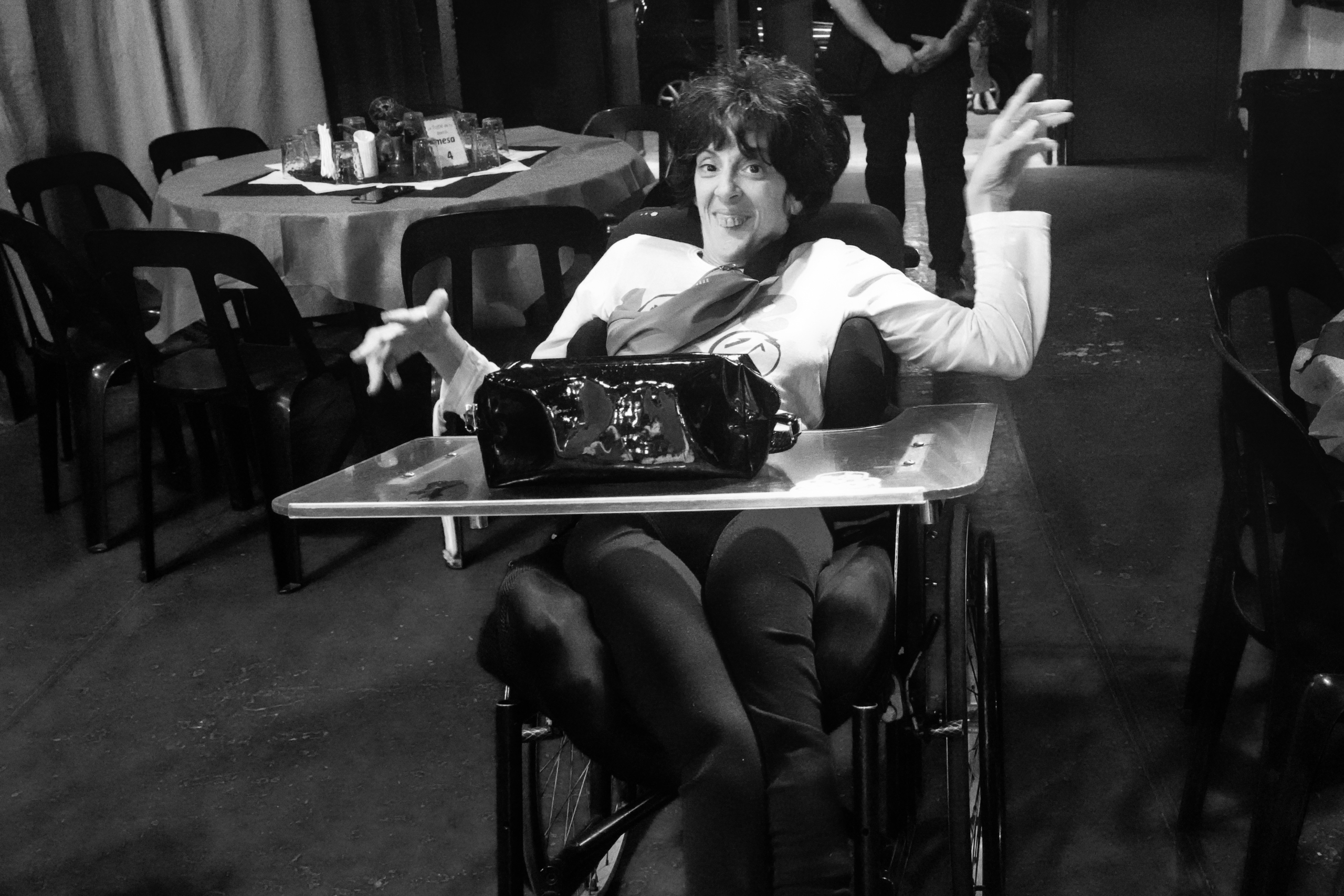
Marta Peluso:
"I'm very happy. There's something important about the Circuit that other places don't have: here everyone can play. Everyone can sing. Anyone can do anything here. So there's no television prejudice where you have to be blonde, blue-eyed, thin... here you can be fat like me and play. You can even play as a family; I came for a while with my three children, who played and sang."
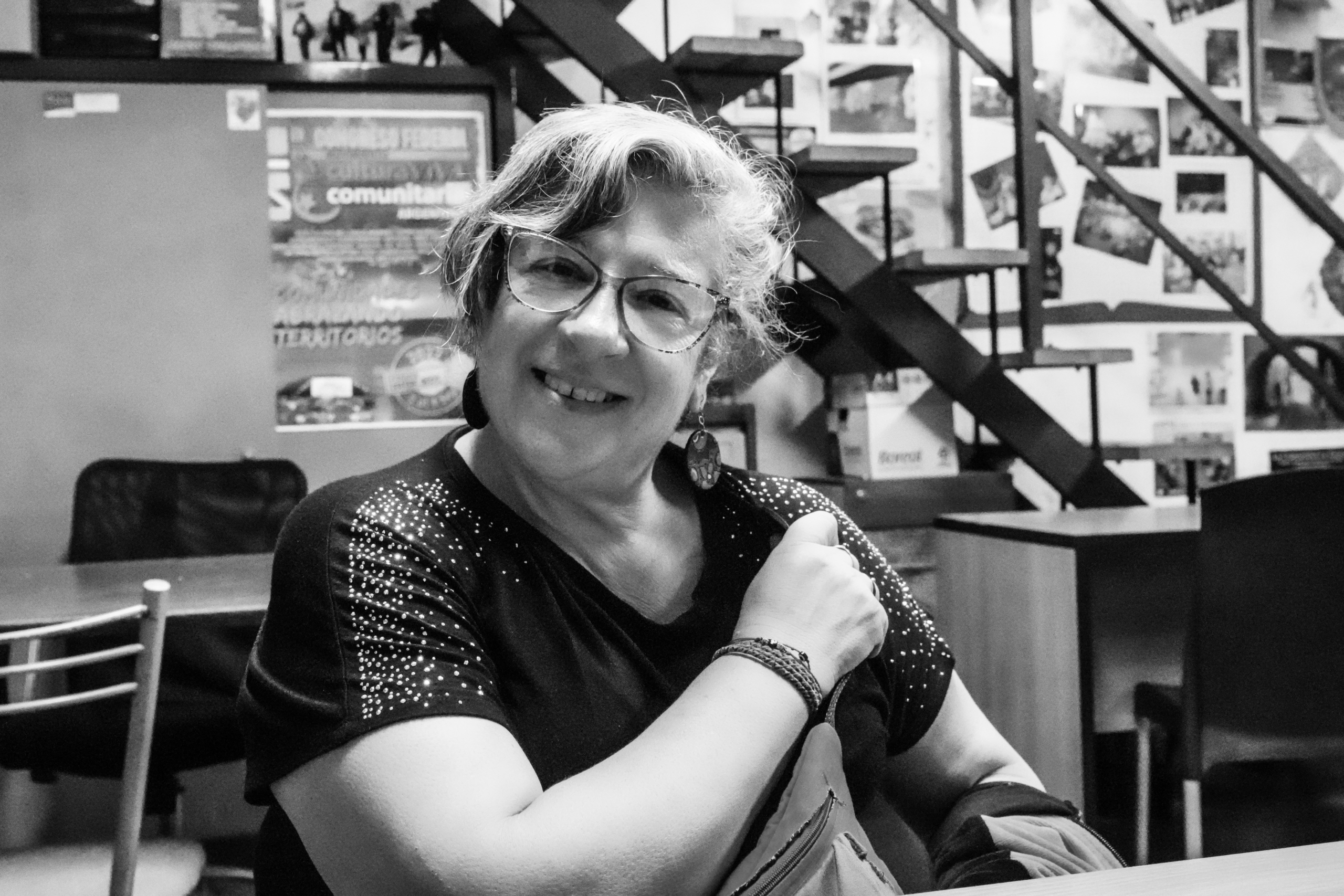
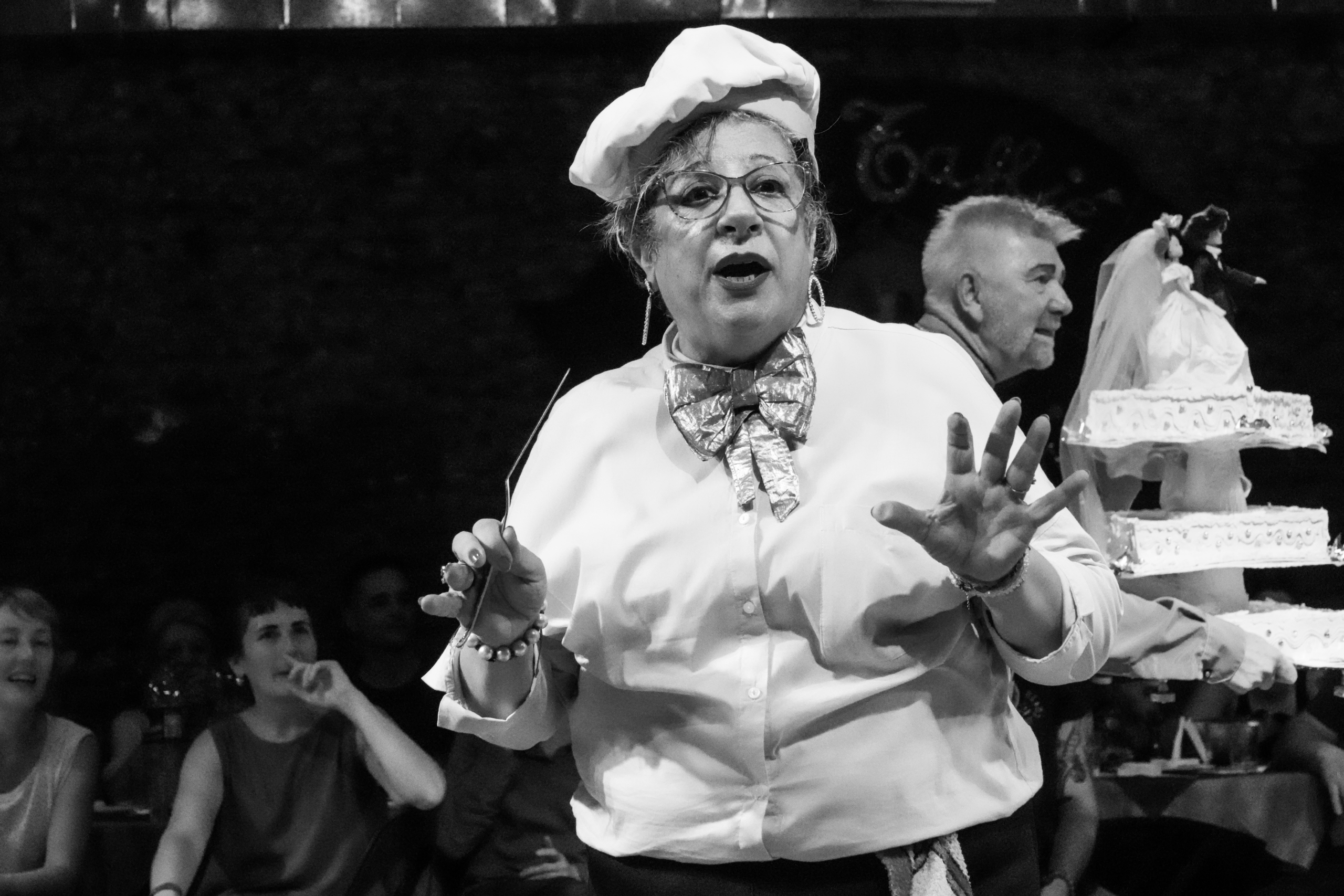
Three "sisters-in-law" appear, owners of "La Taffié de tu barrio", a wedding party salon :
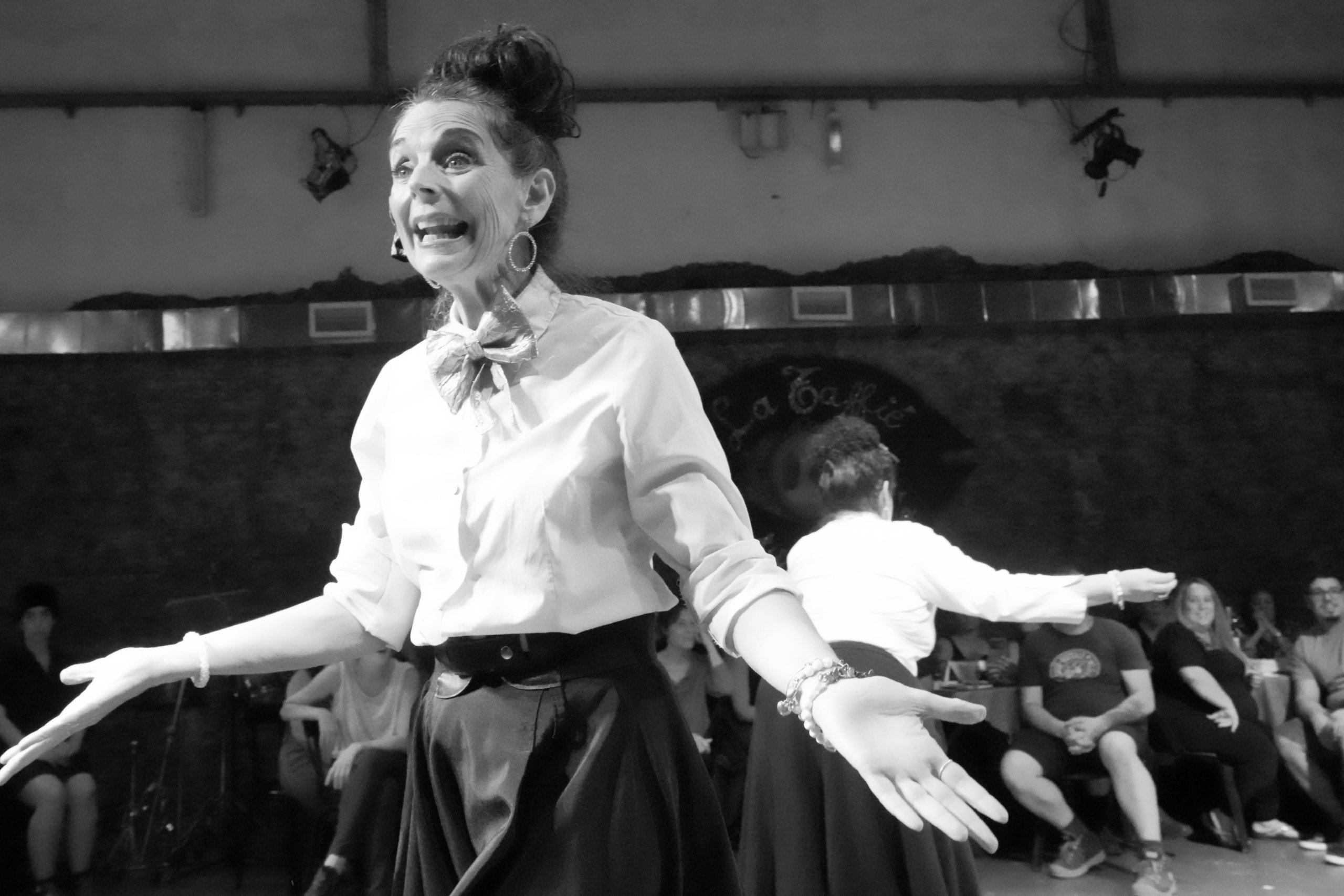
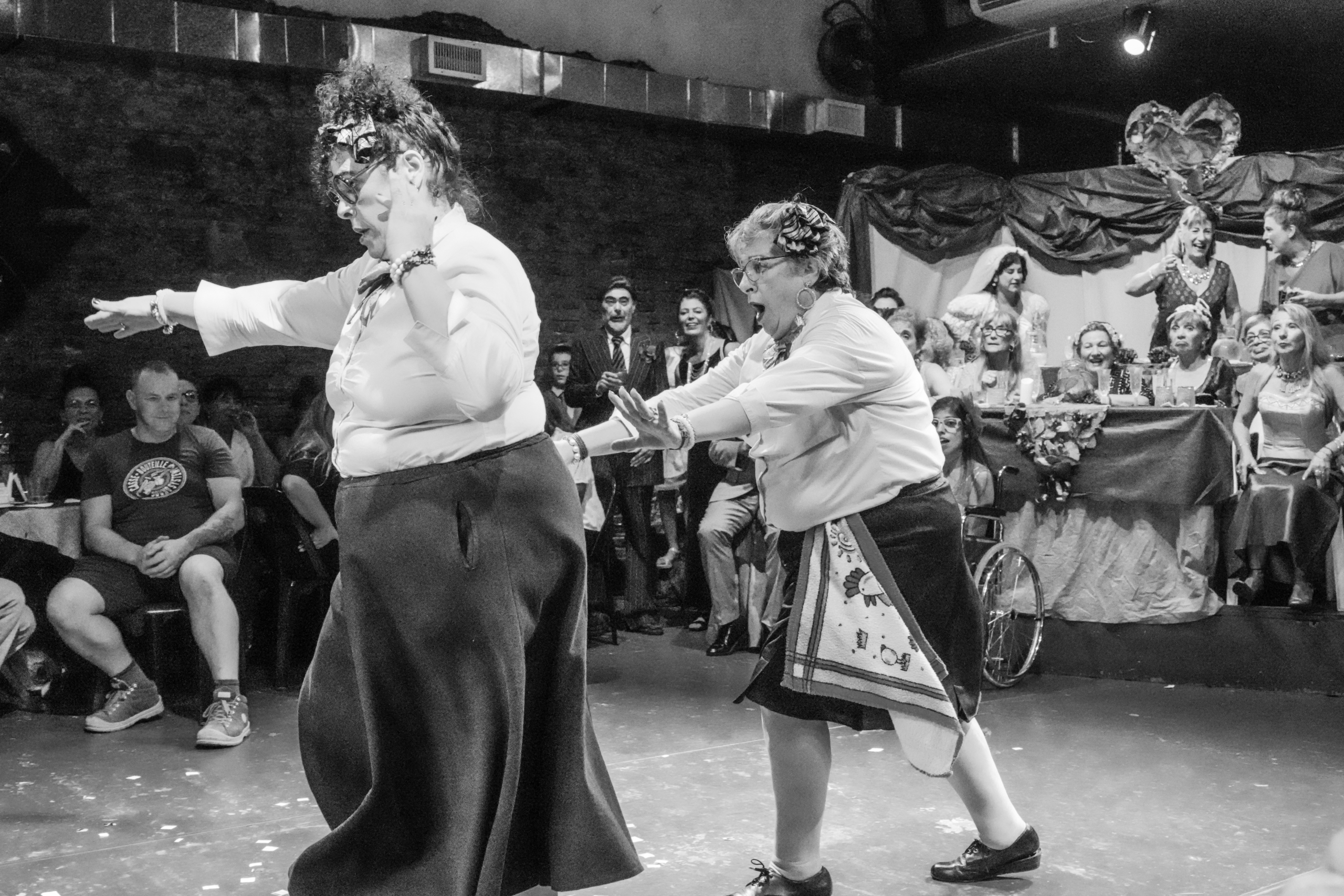
A scandalous episode :
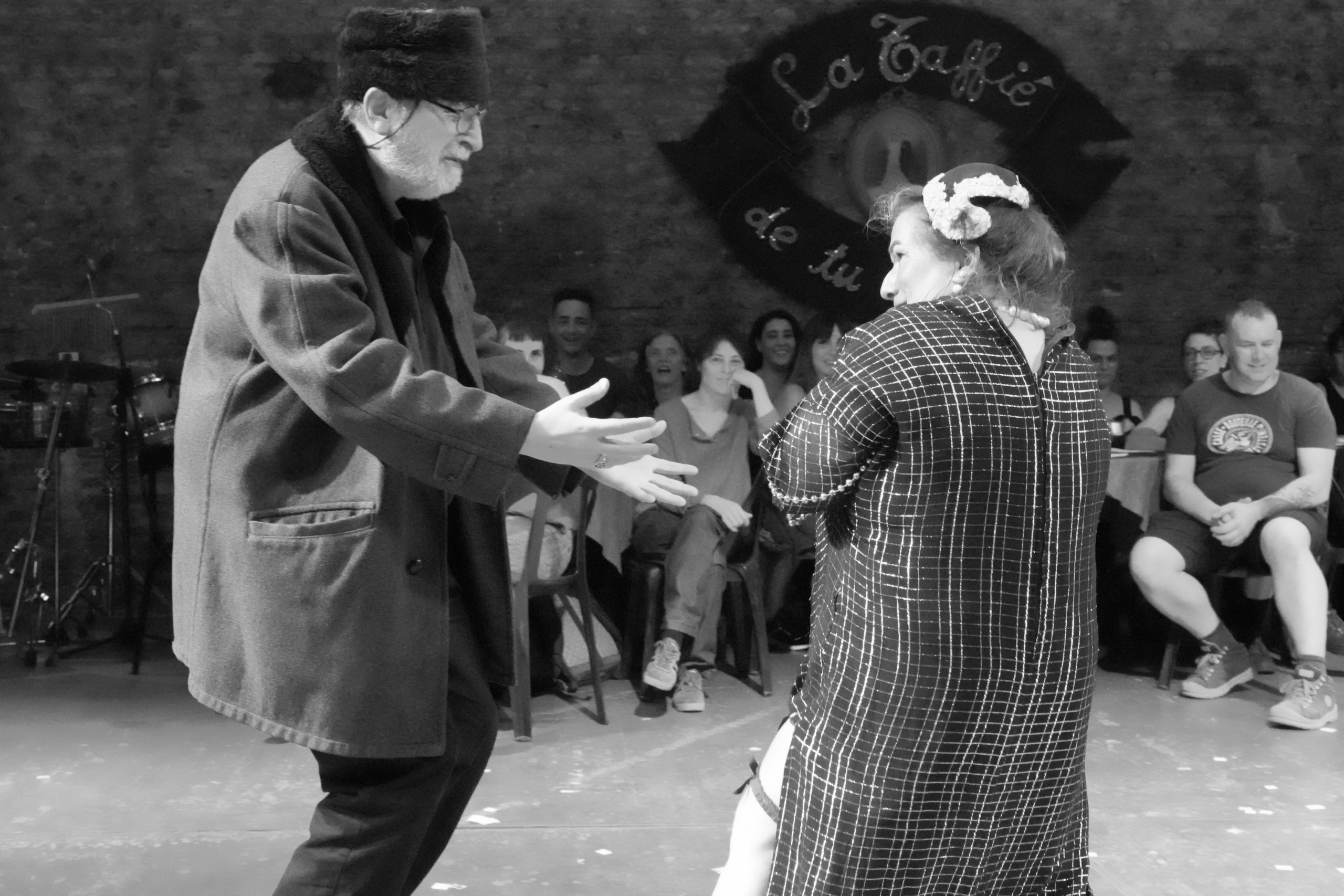
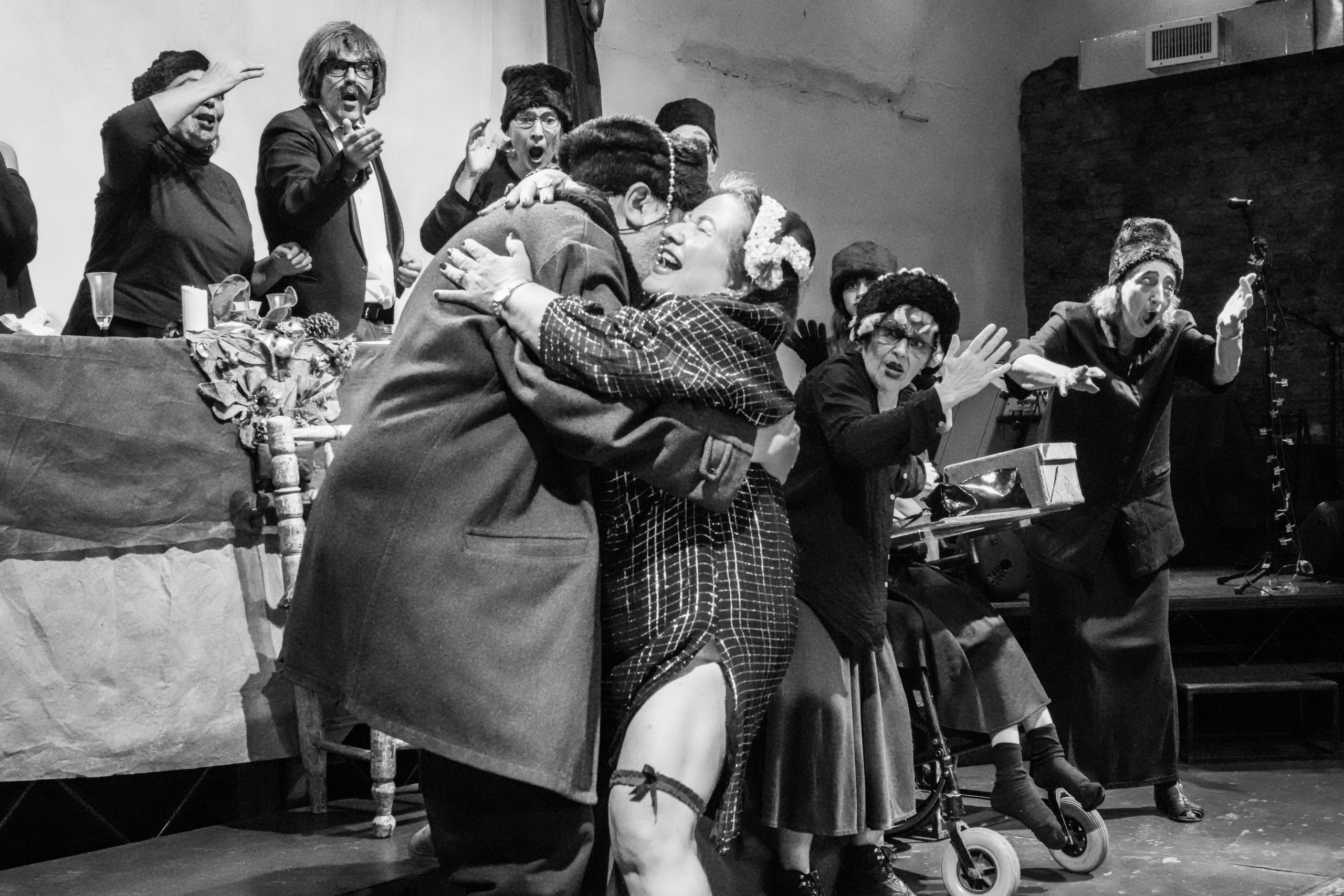
Transformative power
Corina tells me:
"Community theater is a phenomenon of encounters. There are between 70 and 80 neighbors on stage, but a total of 200 who take turns, and all the characters are played by several people. All the neighbors who want to participate join the integration workshop. It's very transformative. There are people whose lives have really changed, not in a therapeutic sense, but because they've found a place to participate that opens up new perspectives. The fact of being applauded, of playing an instrument, of being able to play a role, all this makes them stronger and benefits their daily life. Older people, who say to themselves: well, I've already done everything, I've worked, I've retired, my life is done, and all of a sudden they discover here that they have
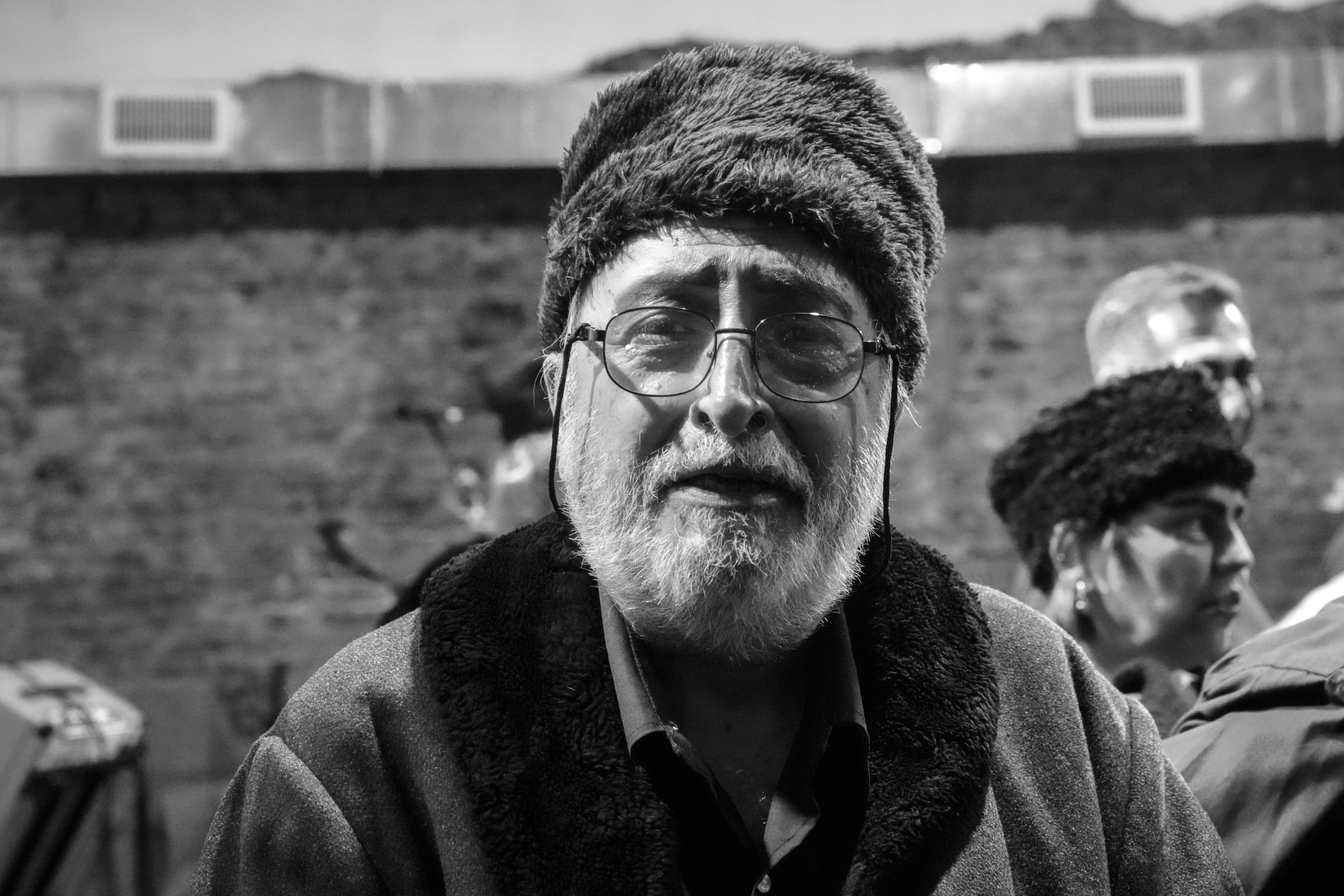
Marcos:
"I used to be a computer systems analyst, so I was very serious. One day, during rehearsals, I came in as usual, very stiff, and they made me play the part of an old man in a hospital who was declaring his love to an old lady. And I had to sing: 'Bésame, bésame mucho, as if it were the last time' (famous South American bolero). I never, ever thought I could do it, let alone in front of people. The theater coincided with my retirement, and it was like a breath of fresh air for me."
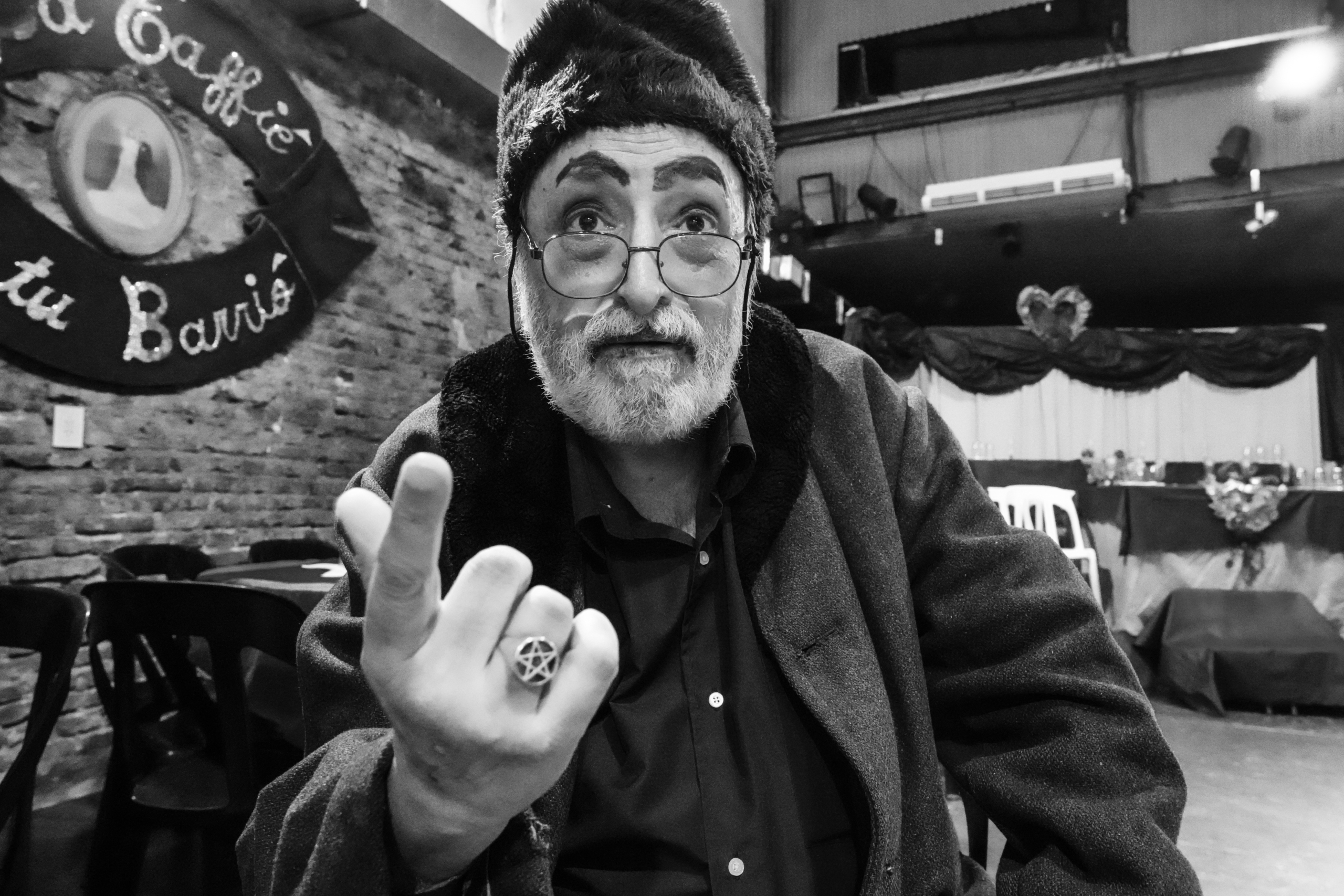
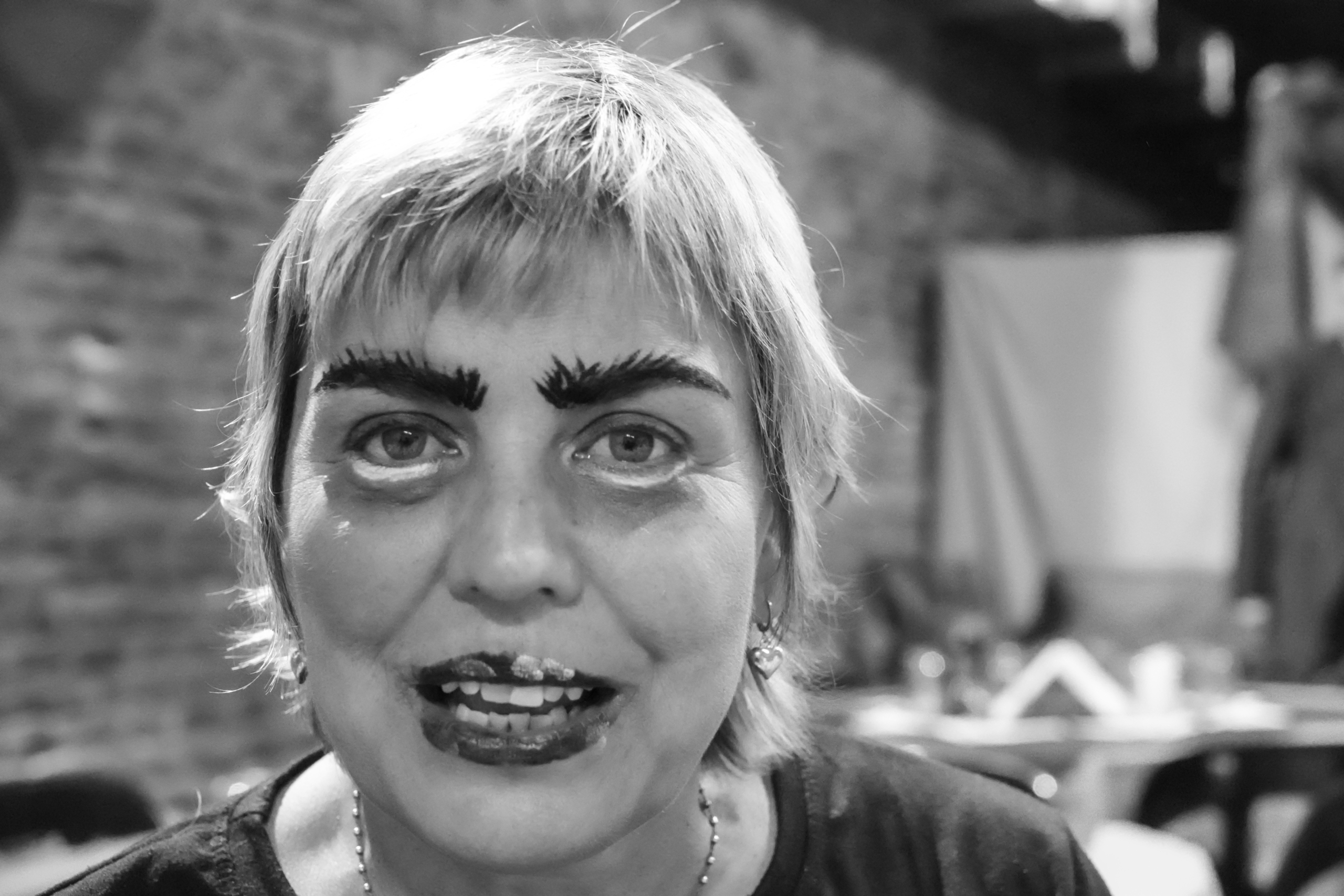
Marcela Lucindo:
"Here, I'm playing the role of a Russian, from Mirko's family. It's my therapy, I love it, you're there and you don't think about anything else. I also love watching it from the audience, the way it makes you feel, it moves you. When we sing the last song, people cry, they're really moved, it's really beautiful."
Spectators leave overwhelmed. People enter as an audience and become relatives of the bride and groom; they eat and even dance together:
"We dance without knowing how to dance, which is why we use music that isn't current, music from 30 years ago."
Ricardo Talento
Consuelo Vazquez "Chela":
"I'd never done theater before. I could never have imagined starting at 60. The Circuit is a world, a unique place, different from all the others. The emotion of the final song, with people on their feet applauding wildly. The people who see you dance and, seeing that you're a senior citizen, congratulate you, they can't believe it. I don't think there's anything quite like it. We're one big family with our differences, but a family nonetheless. Circuito Cultural Barracas has changed my life!
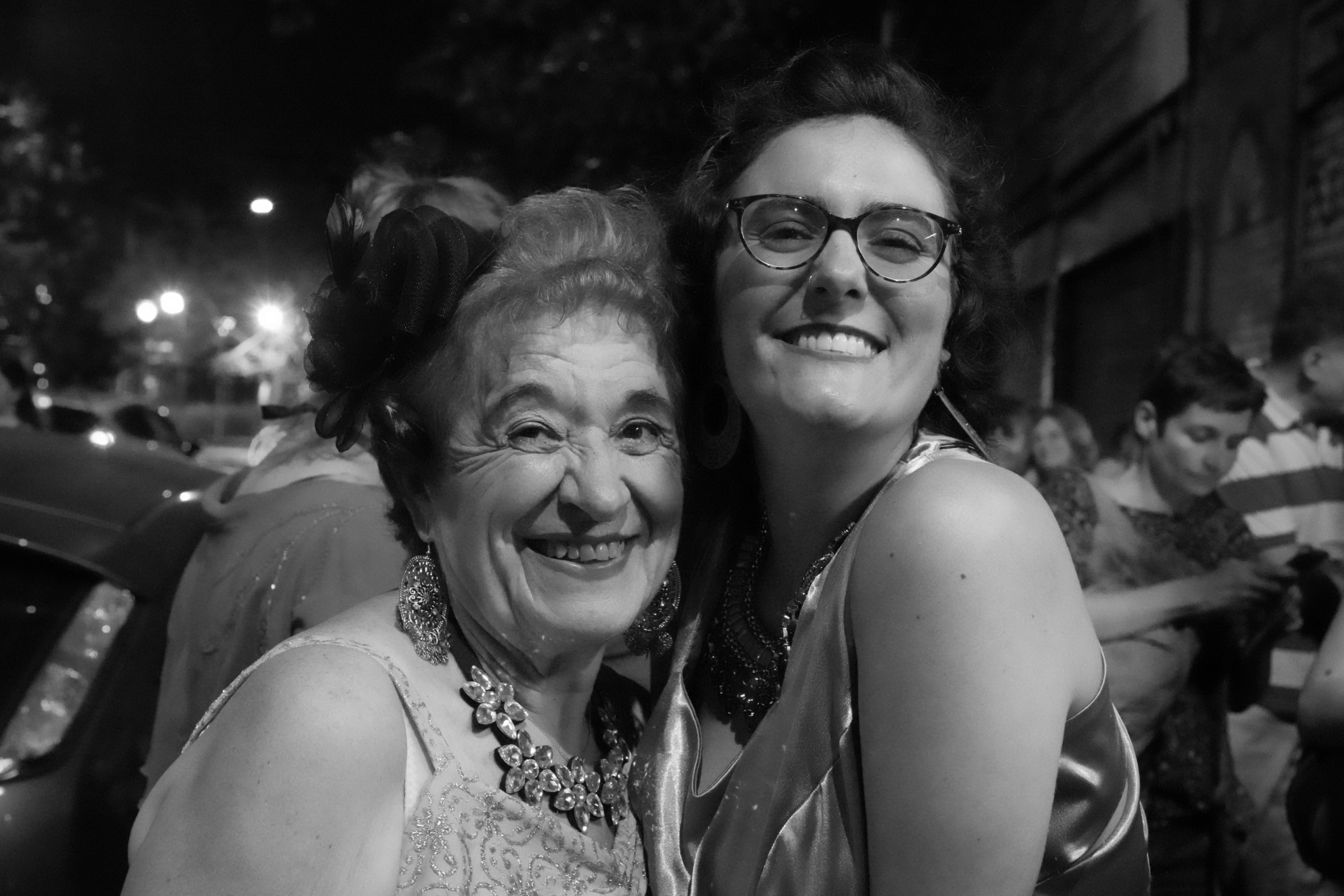
Graciela Cattaneo:
"I've had the opportunity to play at Luna Park, which is something wonderful, and yet I don't know if I'd trade it, because over there, when the show's over, the audience go their separate ways. Here, on the other hand, we talk to the audience, and it's priceless to hear what they're saying. People get very involved in what we do, they say, 'I came with one mood and I'm leaving with another', because really, marriage entertains and makes you happy."
Some spectators even take advantage of the "priest's" presence to get "married"!
From individualism to cooperation
Even community relations are changing," says Ricardo :
"That the community, however small, produces fiction is also a fact. For me, fiction is never innocent; when we tell something, it's in the interest of organizing something for the future, with a view to applying it to life in society. Here, in the final analysis, we could say that we're experimenting with a different kind of relationship at community level. We're not competing; we're working collaboratively, which is the opposite of what happens in society, where we work to compete. There are engineers, teachers, masters, cab drivers, hairdressers. An interesting phenomenon is that mutual aid also manifests itself before and after the performance. Social ties make it possible for an actor electrician to repair electrical problems in his fellow actors' homes, or for a biologist to offer tutoring to children and teenagers in high school."
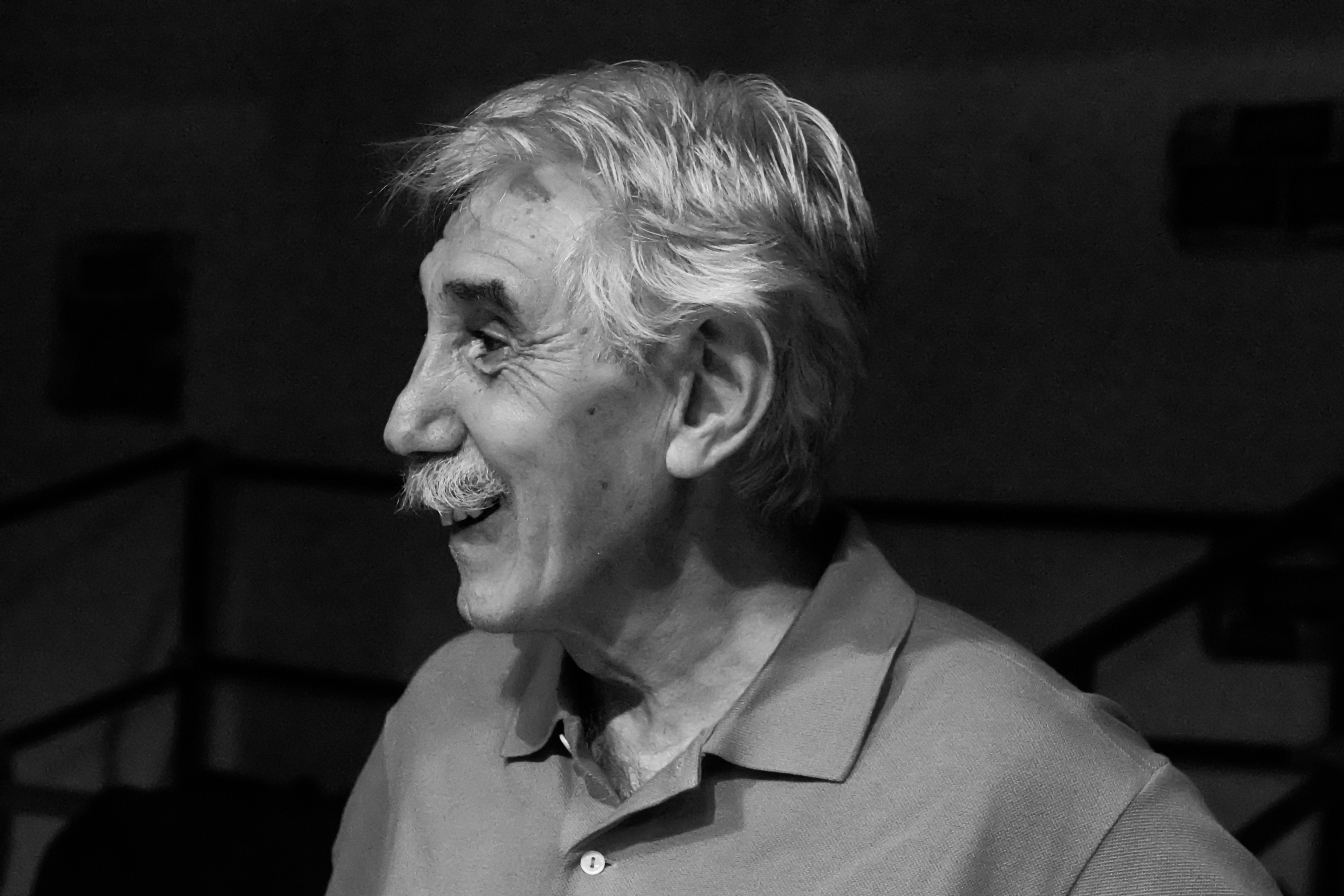
Corina adds:
"There's like a weave, an underlying network that binds us together and makes very valuable processes possible. Chela finished high school during the pandemic. A classmate was a teacher, and during the pandemic he said to her, 'Chela, why don't you take advantage of this and finish high school?' And another classmate who was working on these virtual education projects told her to sign up, and that's how Chela finished high school." Chela says: "I had great support from my classmates. When I got a bit weak, they'd say to me: 'Chela, you can do it'. It was a fellow student, a teacher where I was studying, who gave me the diploma. One Saturday, after removing my make-up, I saw them all together, congratulating me and kissing me. That emotion can only be experienced at the Circuit."
The same philosophy as the collective Fin De Un Mundo (FUNO)
How is the public reacting to the current crisis?
"The public always has this desire to come and take part in a meeting, there's a desire to meet people, to lower the levels of paranoia a little and stop wondering, "This one, who did he vote for, and this one, what neighborhood is he from?" Here, when you arrive, you're a family member, or a friend of the bride and groom. We're all in this together, you know? No matter who you voted for, no matter what you think. A lot of people are very moved by the final song. It's 60 people singing together, adults and children... it's moving. The power of song".
Corina
"Todo vale en esta fiesta
los solteros se casaron,
los casados se cambiaron de pareja
todo vale en esta fiesta".
...
"todo vale en esta fiesta
los invitados público en ella
y los actores son de acá a la vuelta
todos vecinos, no se sorprenda"
"Everything is allowed in this party
single people got married,
the bride and groom have changed partners
anything goes at this party".
...
"anything goes at this party
guests are the audience
and the actors are local
all neighbors, so don't be surprised."
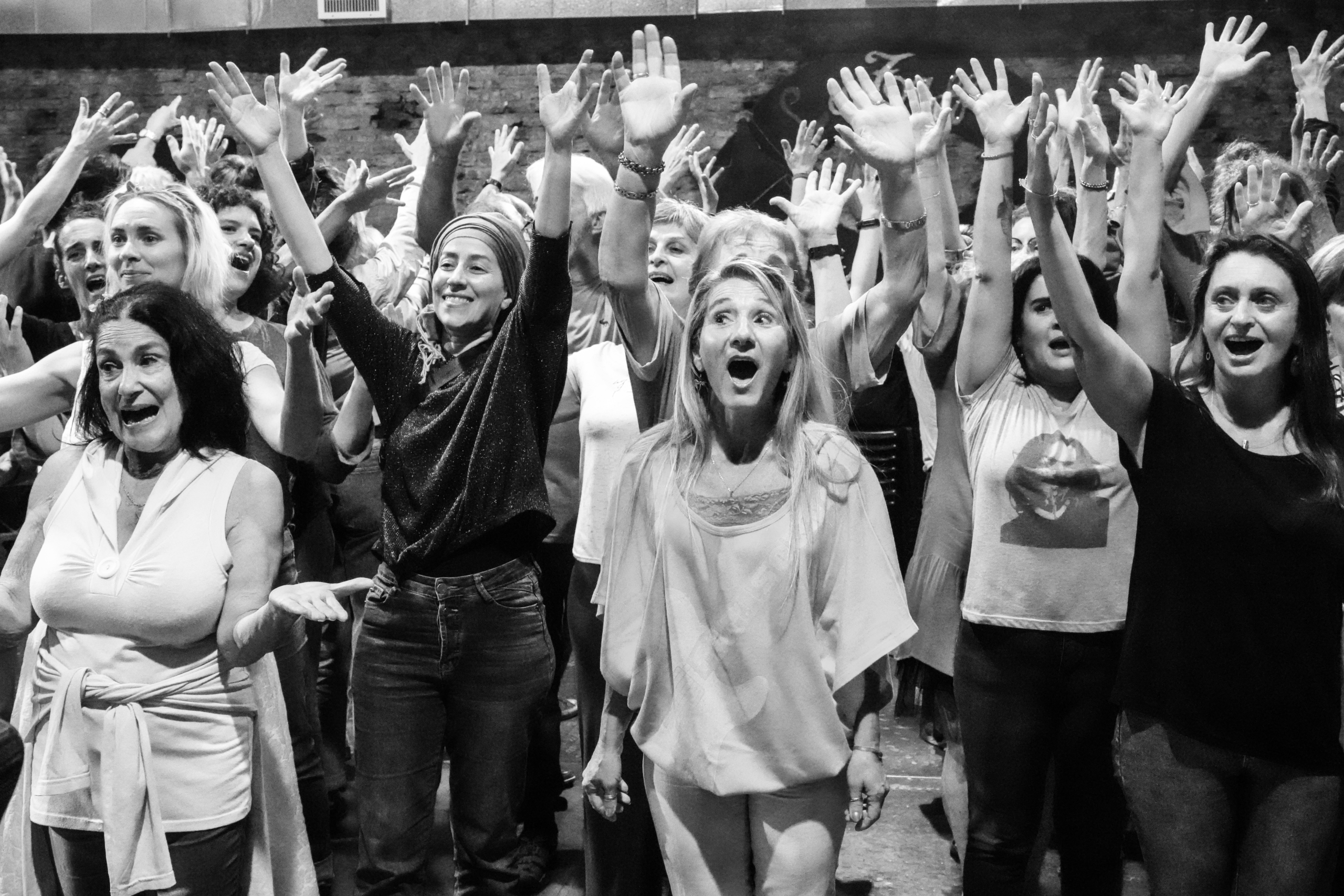
A look from the outside
In 2023, a group of Frenchmen spent 10 days at the Barracas theater, organized by "Le caracol migrante" ("The migrating snail").
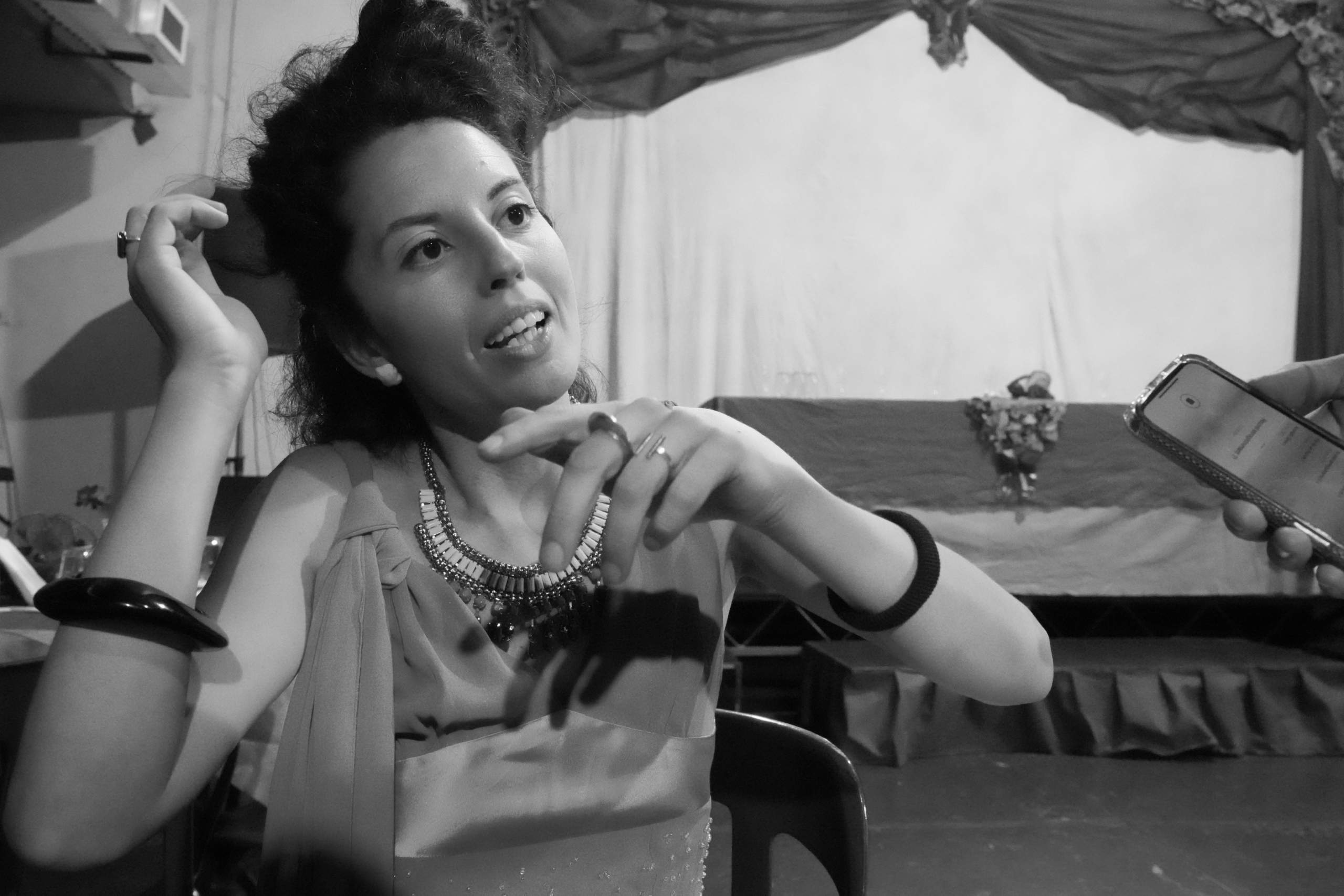
Juliette:
"I live in the south of France, near Lourdes, in a village of 200 inhabitants. I'm part of a circus company and a trapeze artist. We spent 10 days at Circuito de Barracas. I have a lot to say. Now I have new glasses to see things differently, so a lot of things will change. I want to focus on the idea of bringing different generations together, that's something I want to concentrate on. I'm leaving with my heart about to explode, because it's been filled here. There's a lot of energy and tenderness, and you can do a lot with that. It's been a gift to be here.
And I feel something similar: a gift.
Juliette mentions tenderness and energy. I'd add what I've already observed in other columns: generosity, a sense of community (in this individualistic world), solidarity... and an unquenchable desire to party.
Unforgettable.
Long live Anita and Mirko!
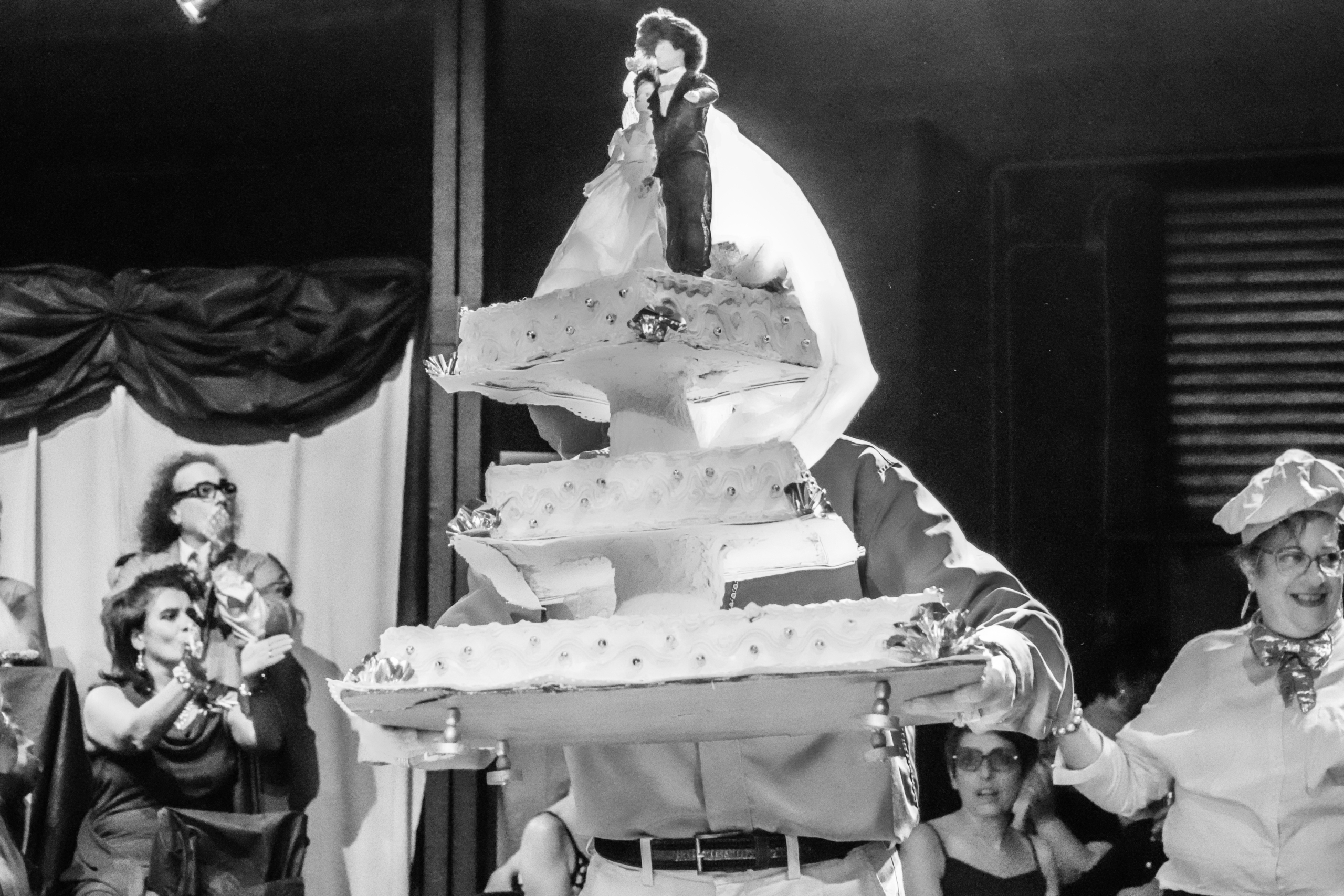
The neighbors
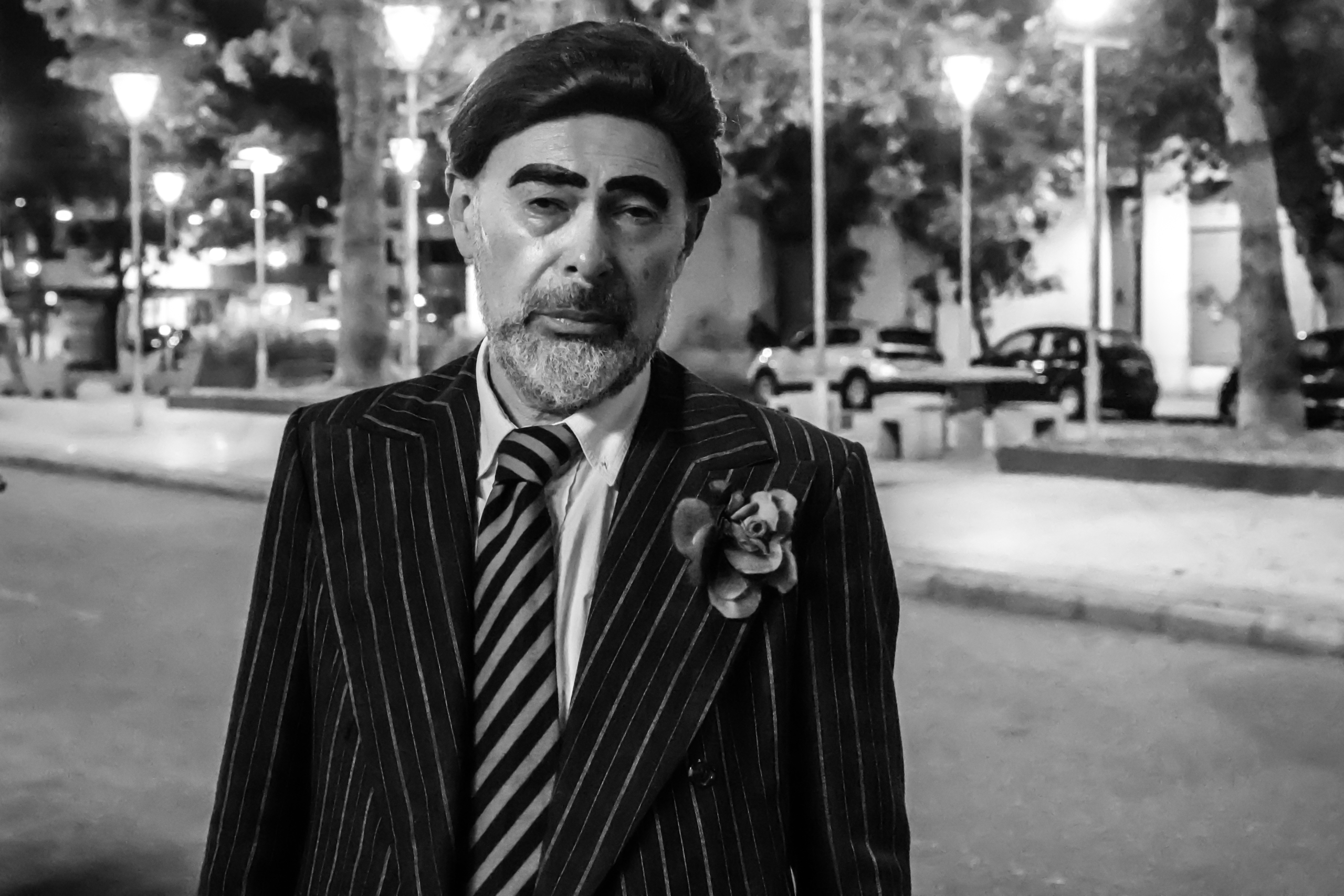
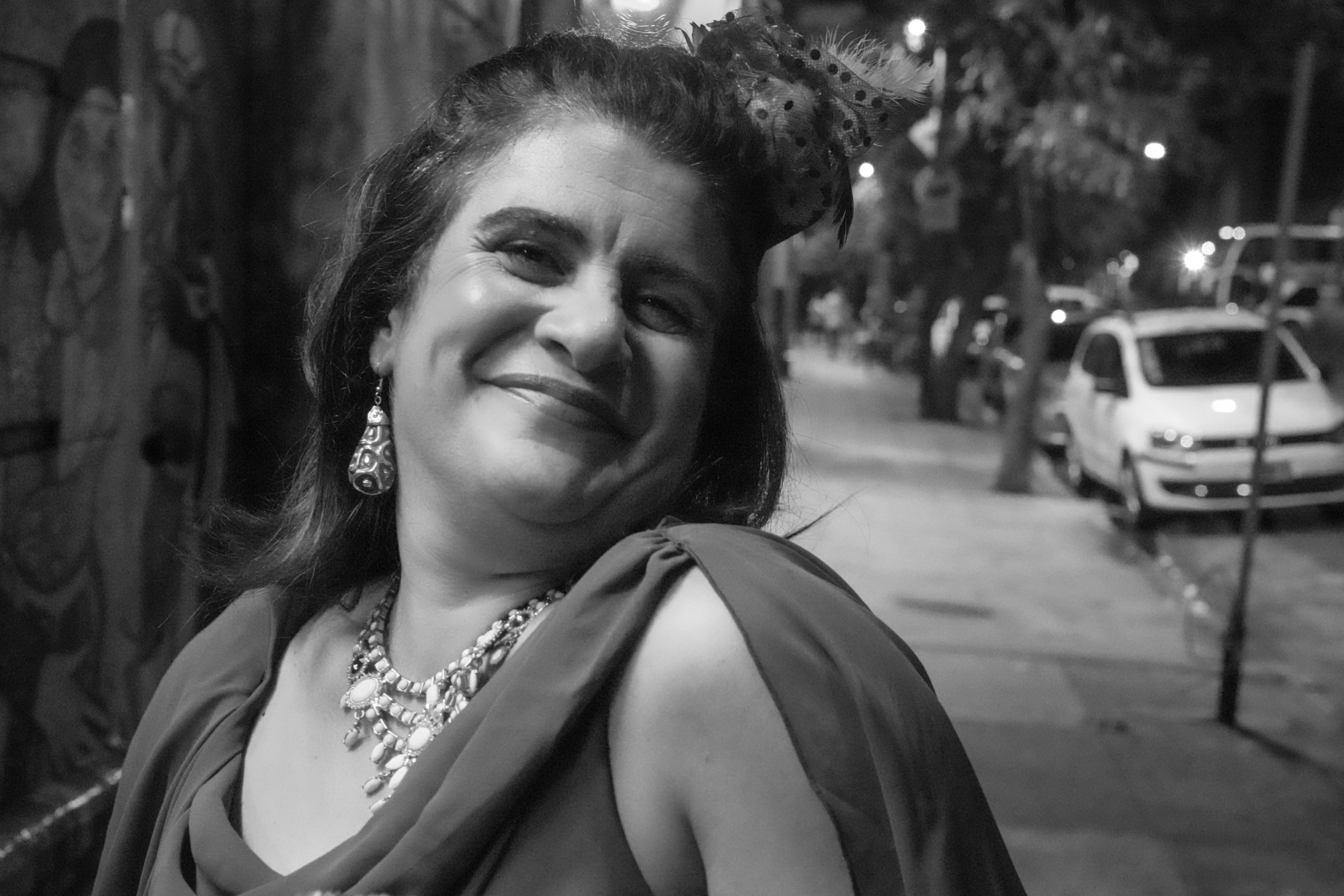
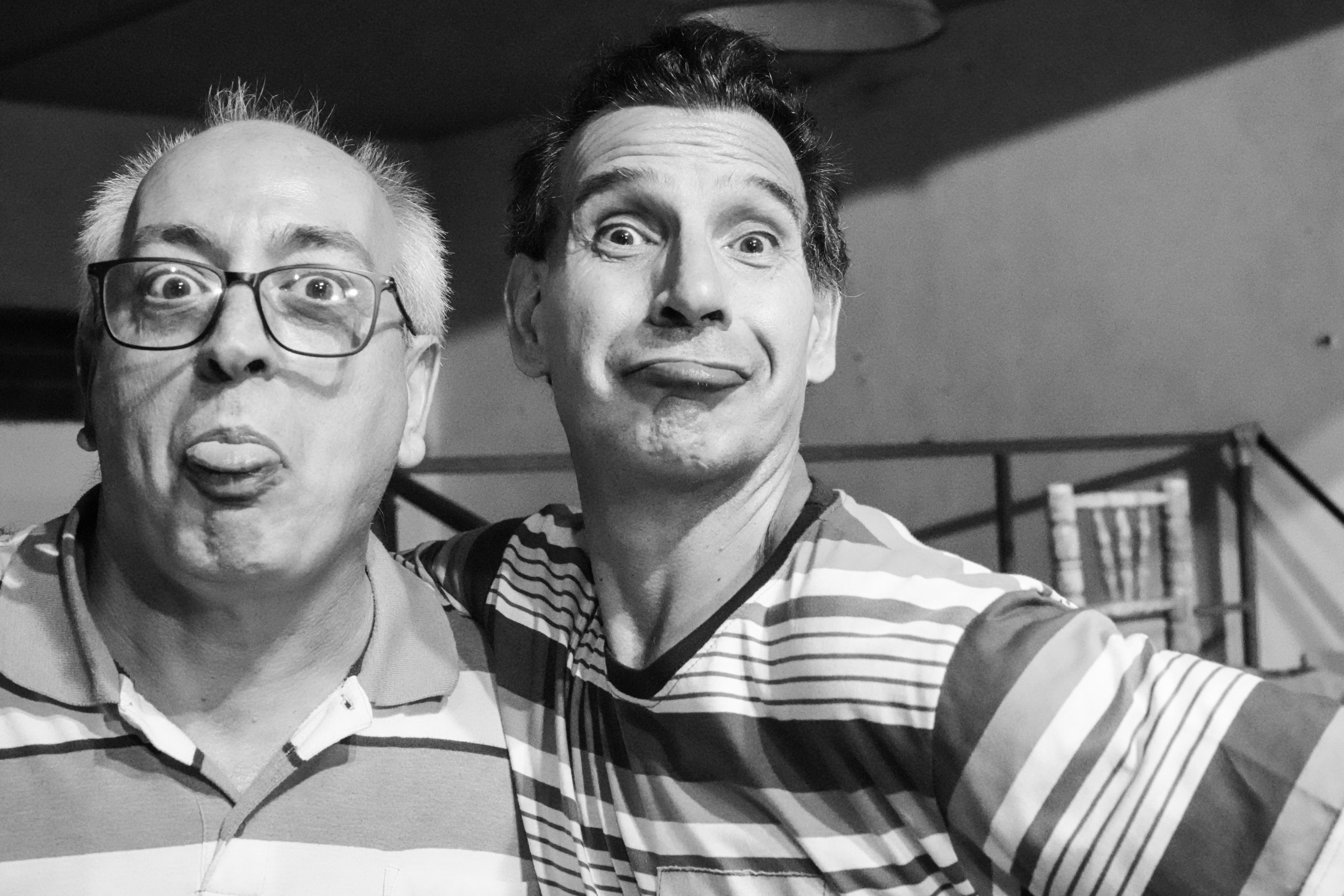
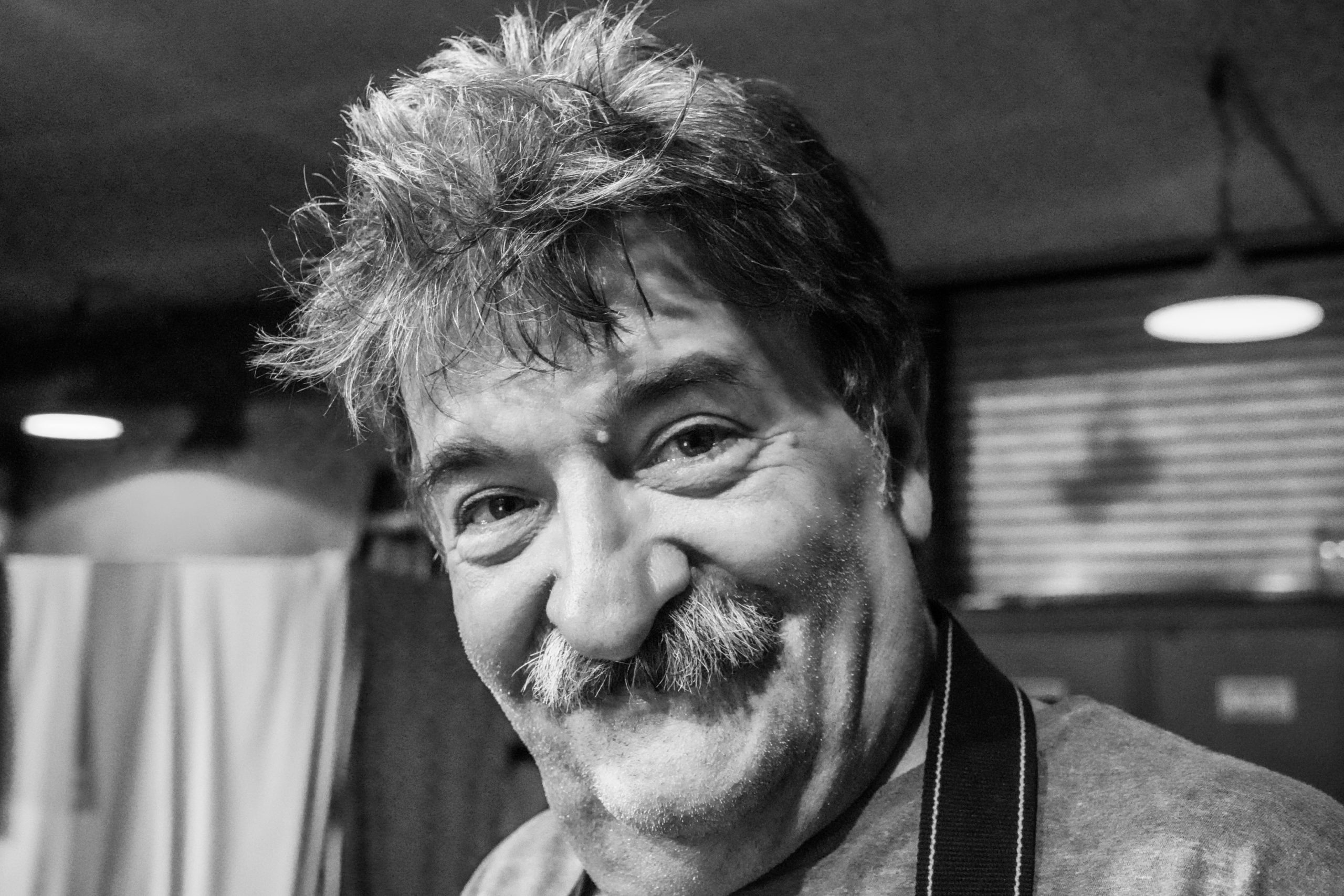
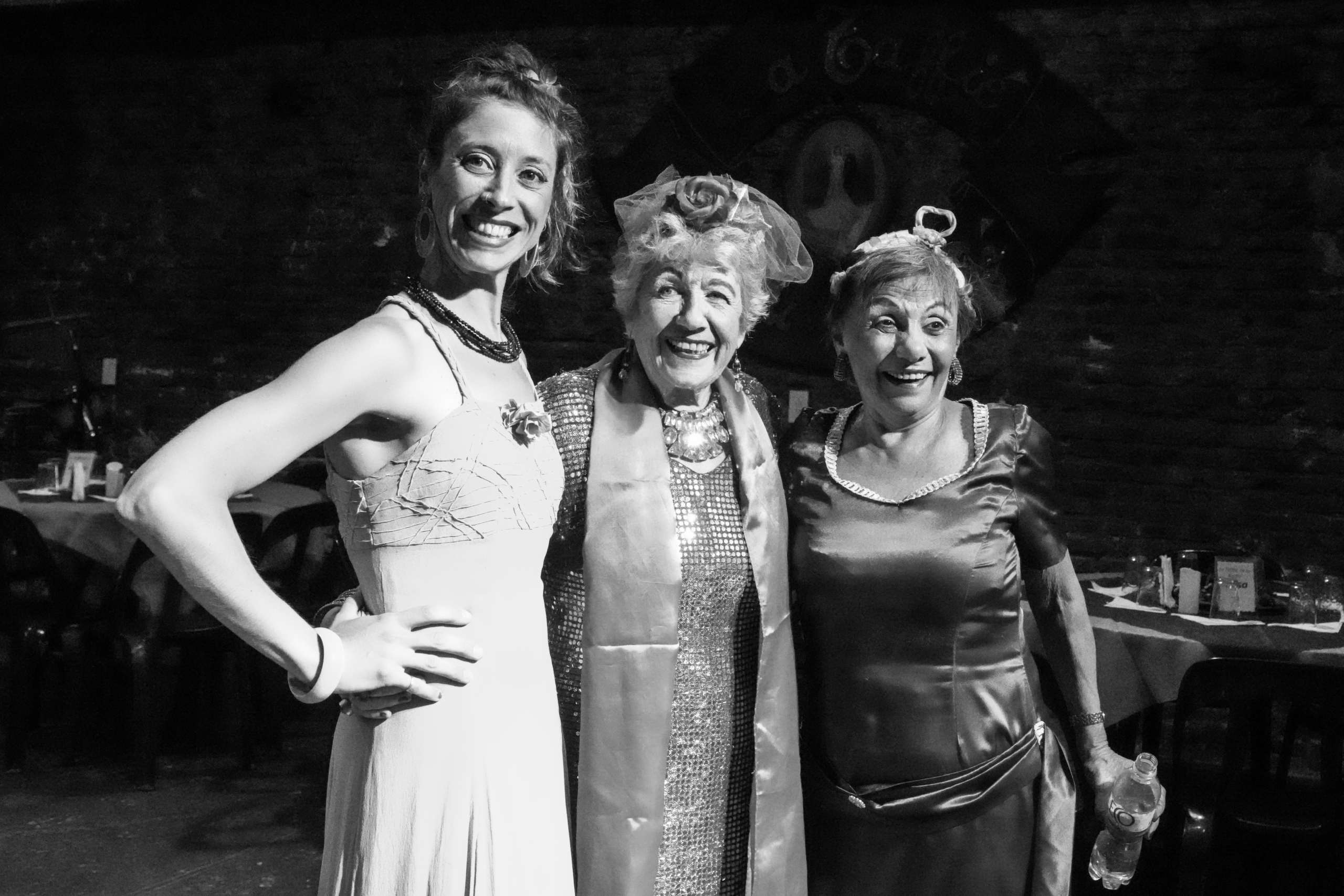
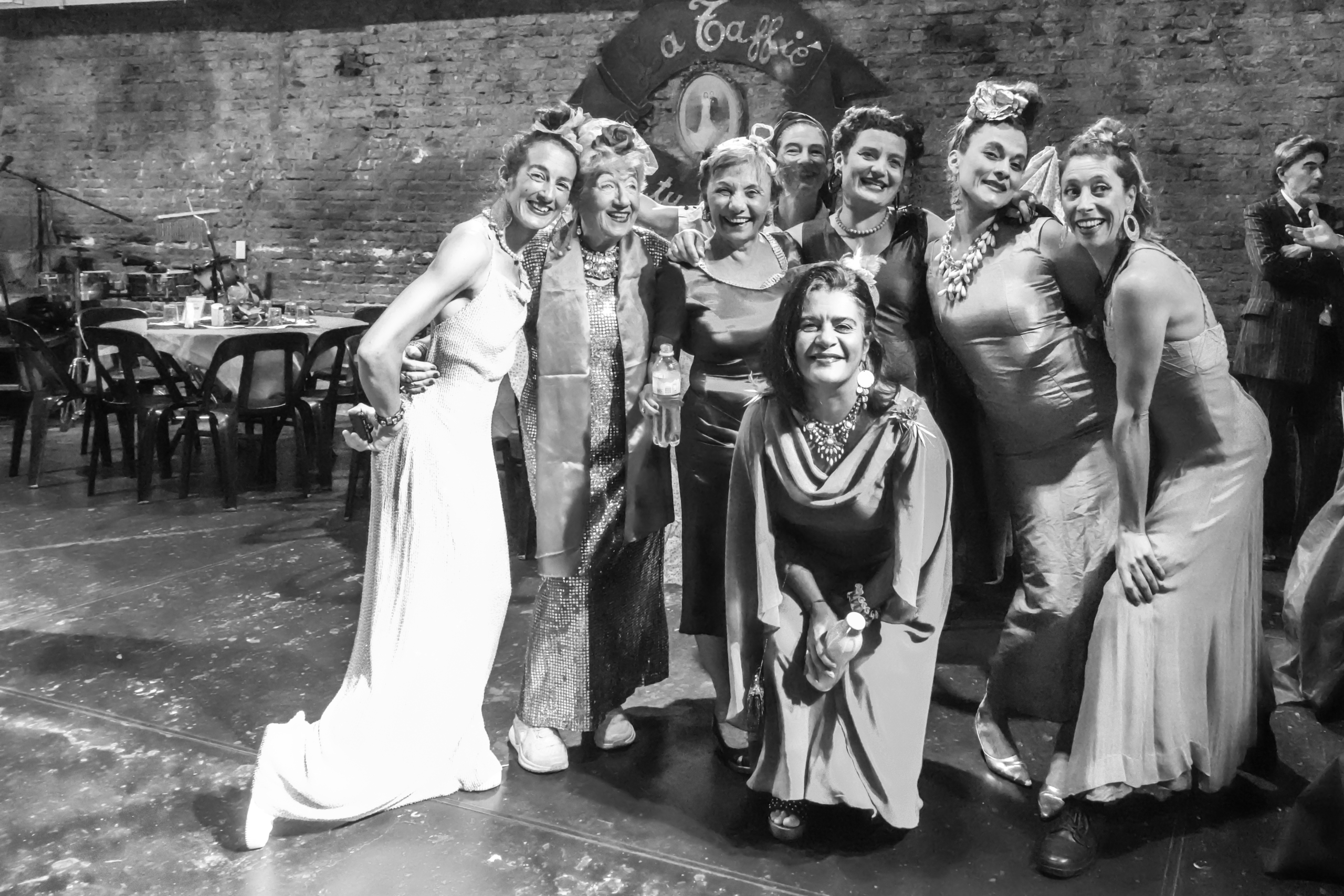
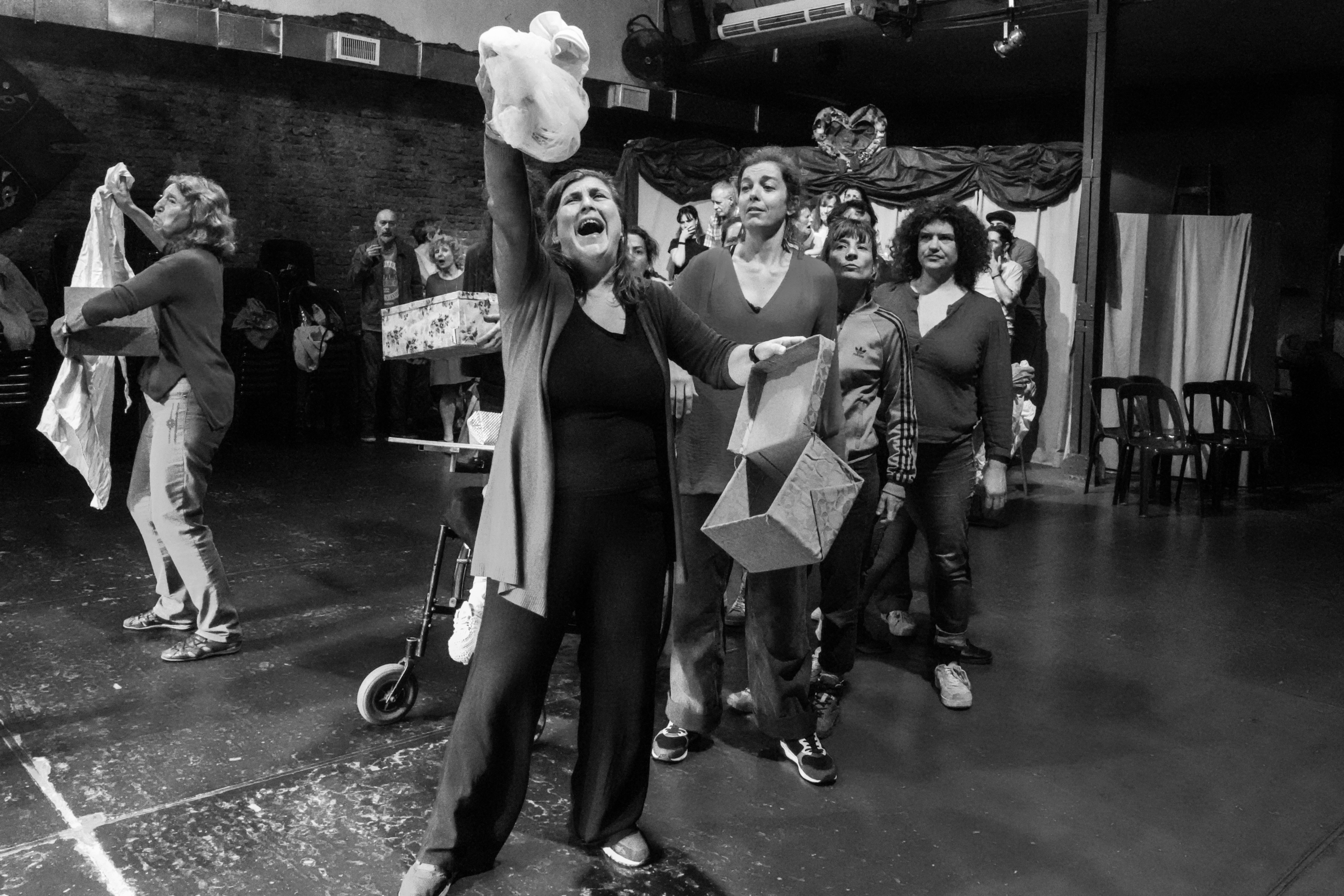

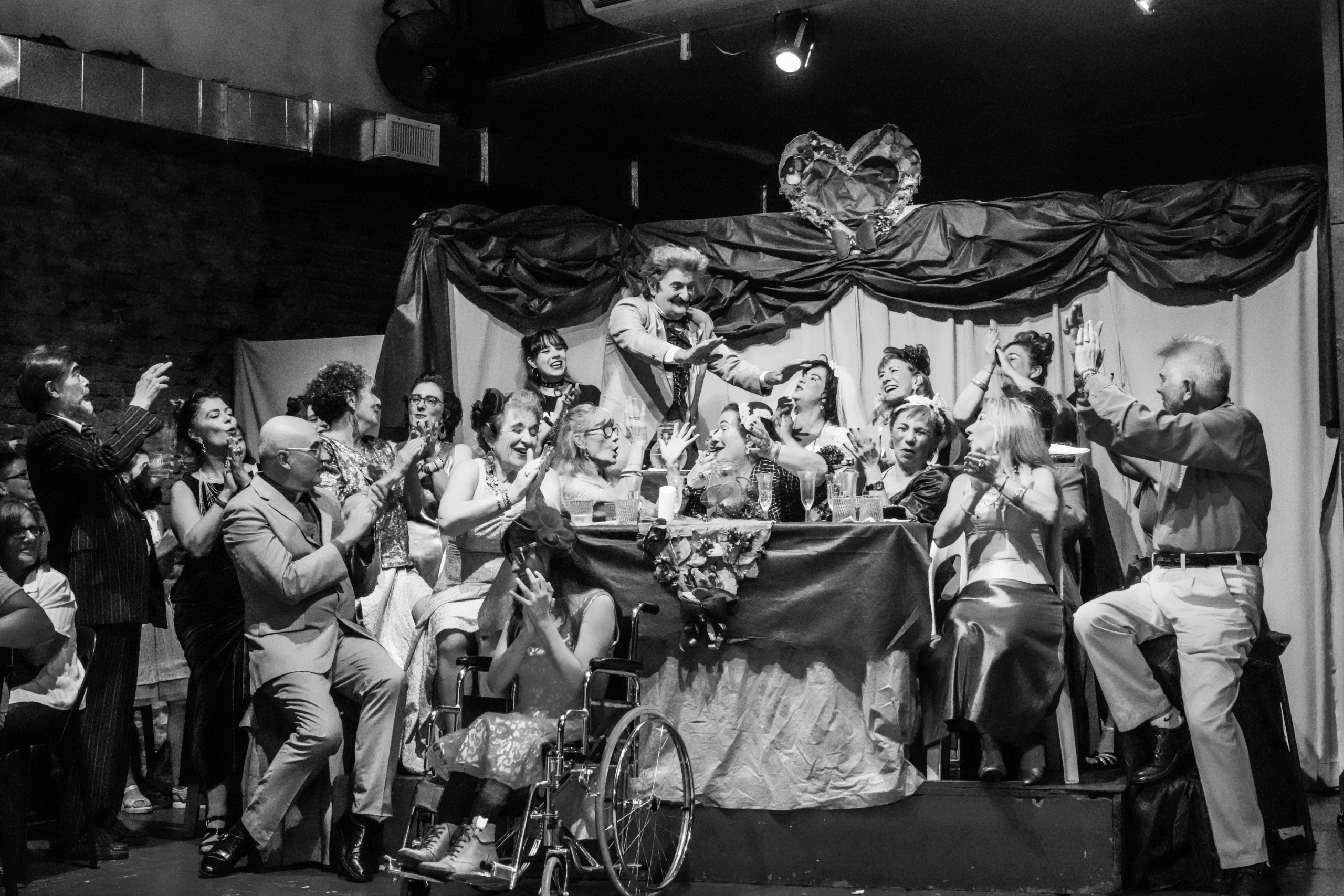
Leave a Reply